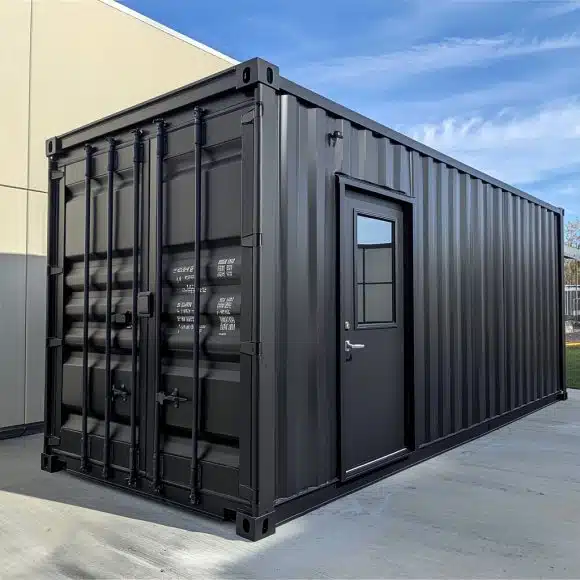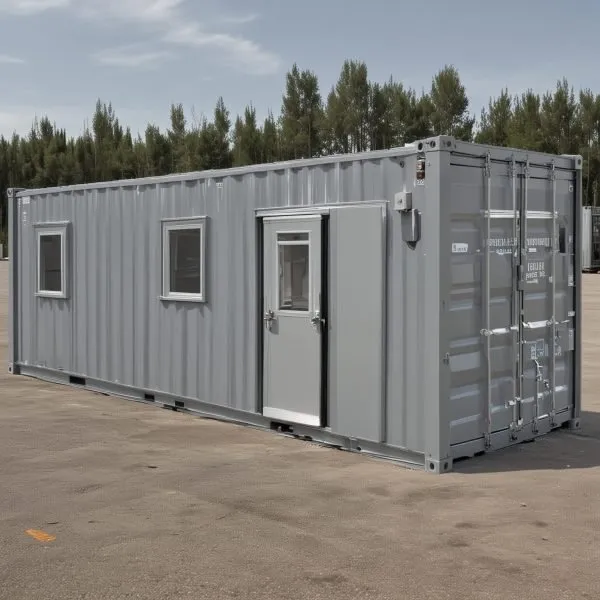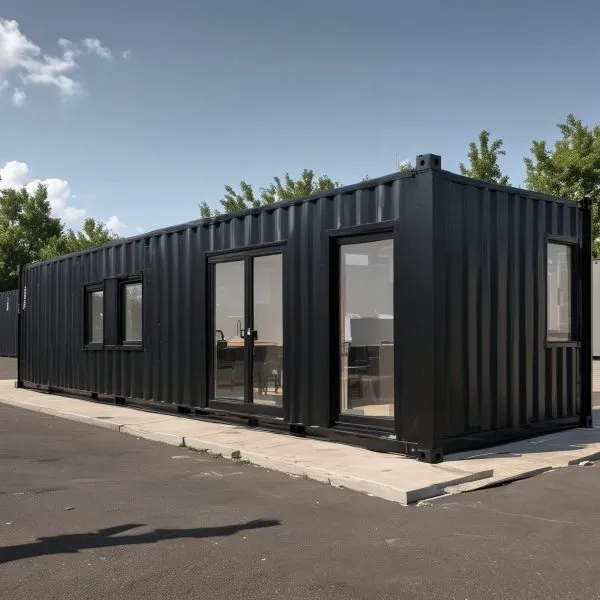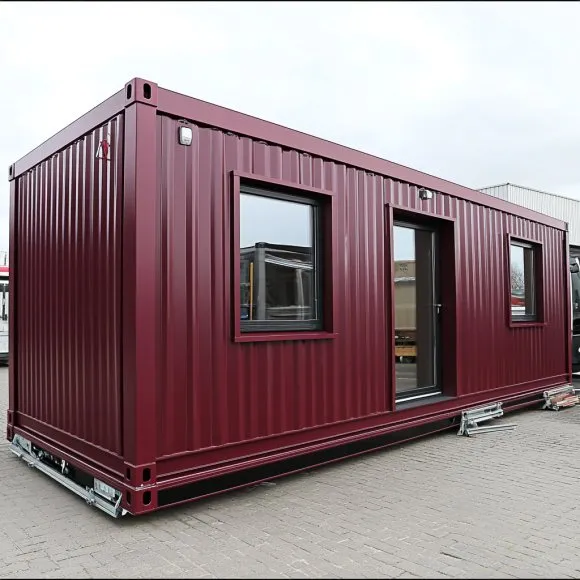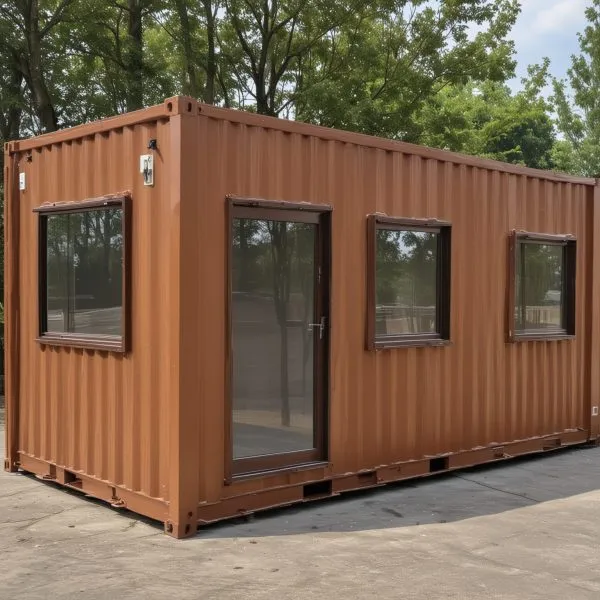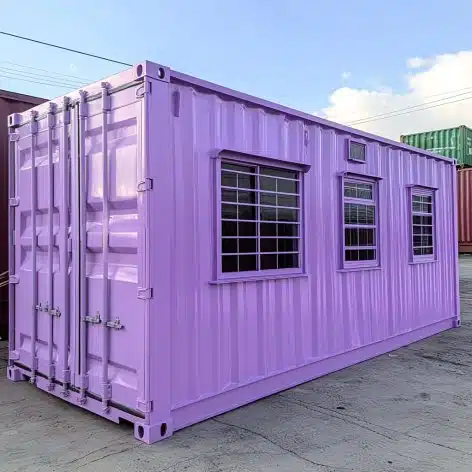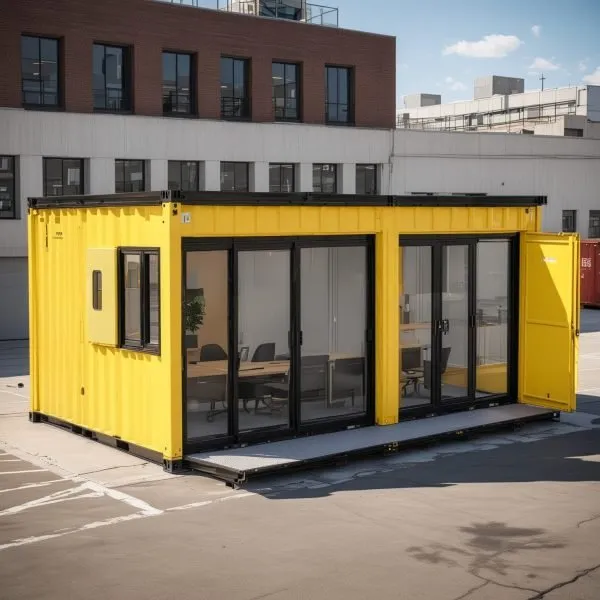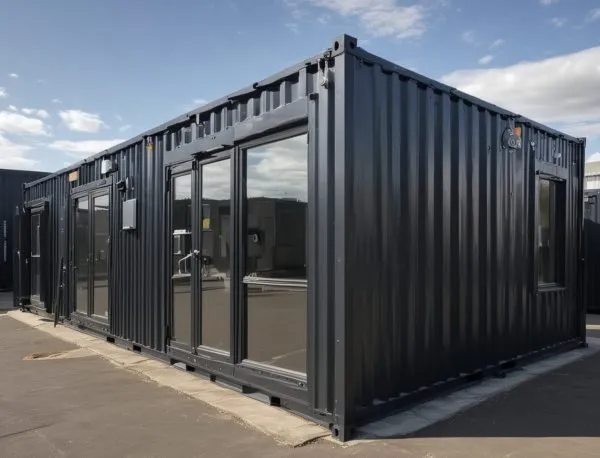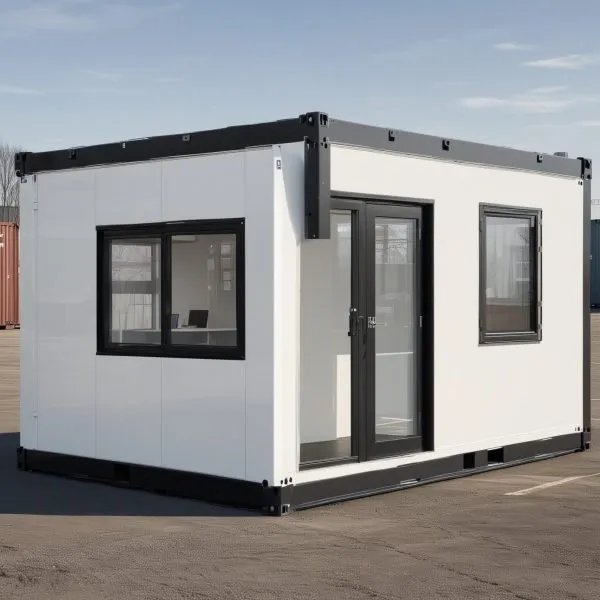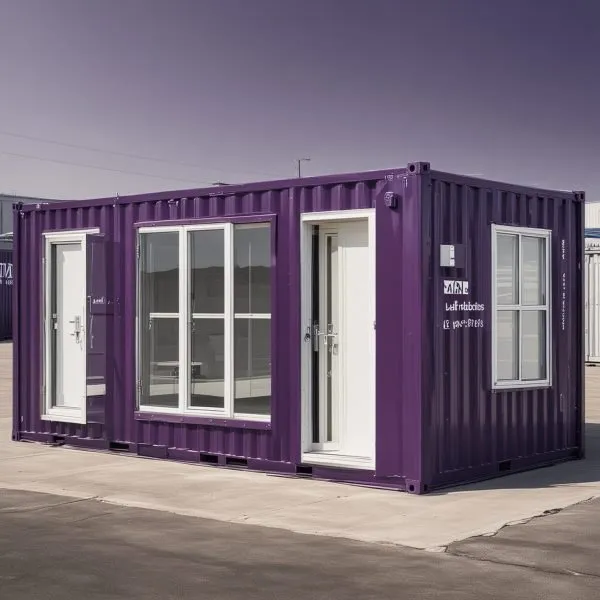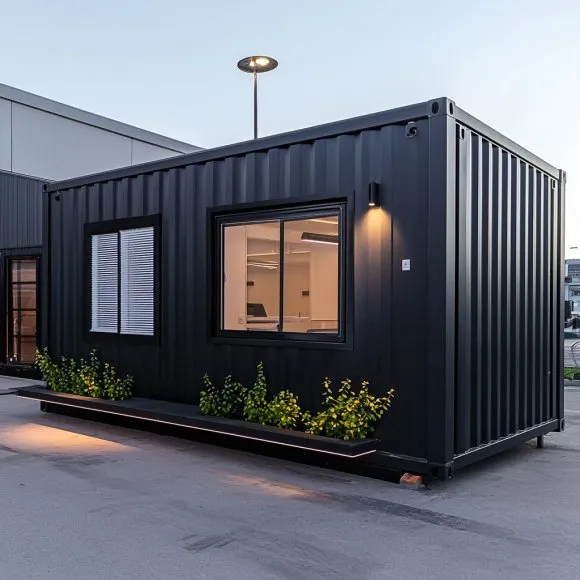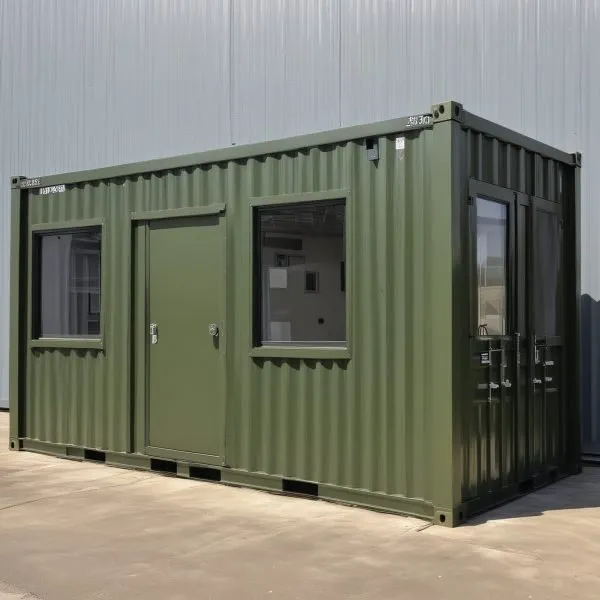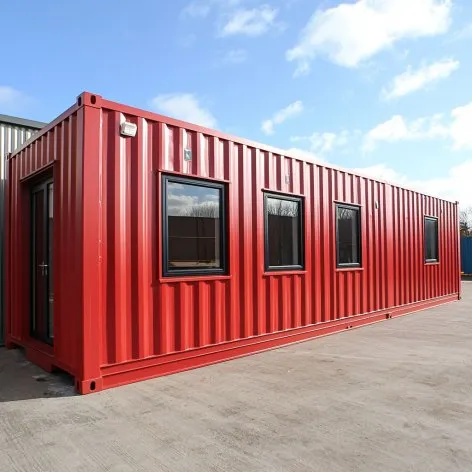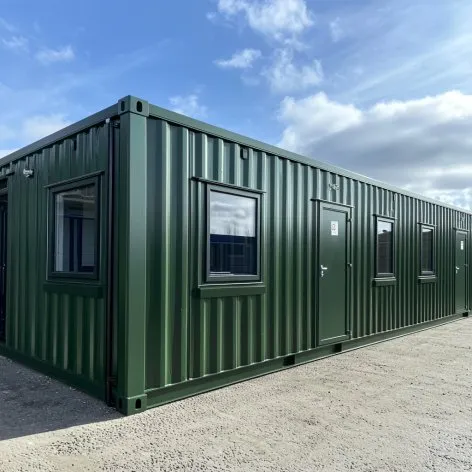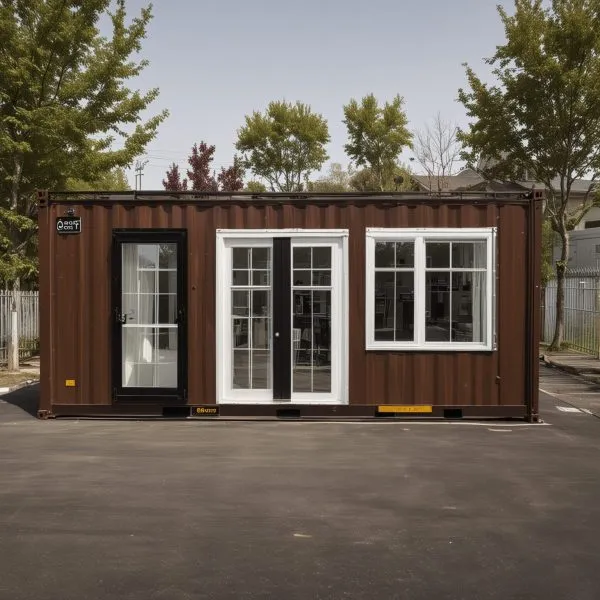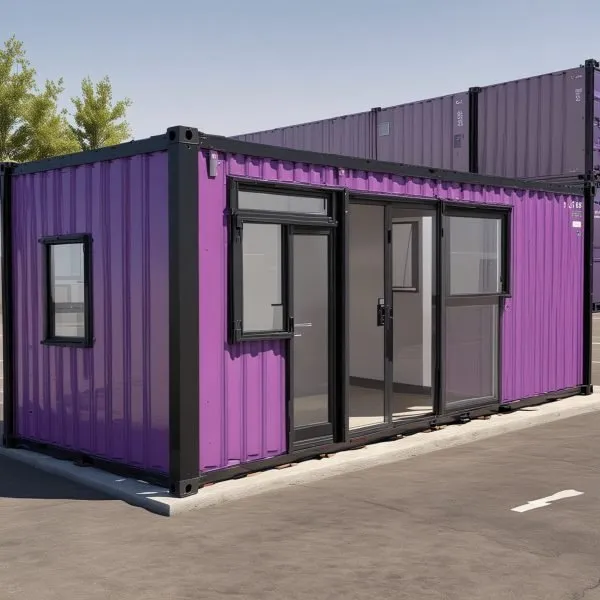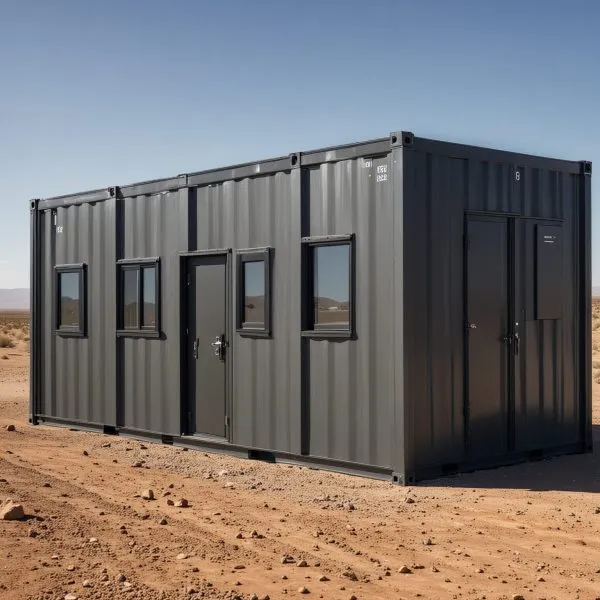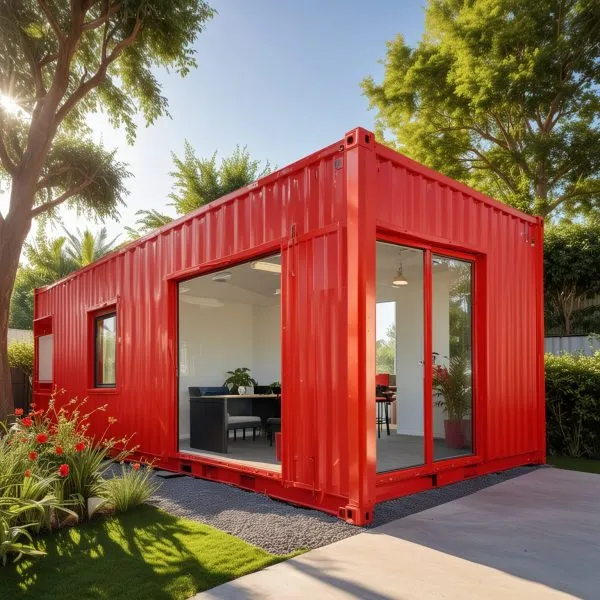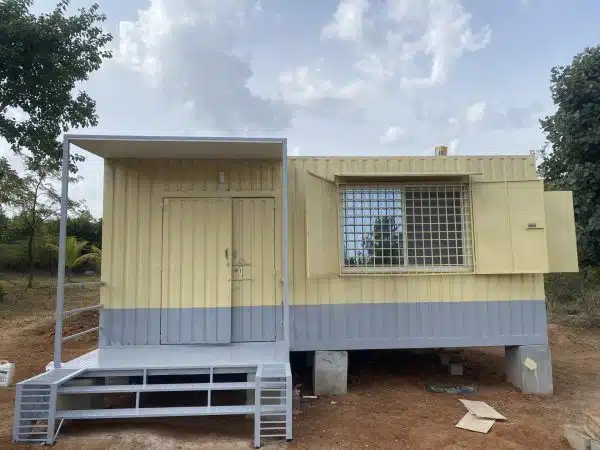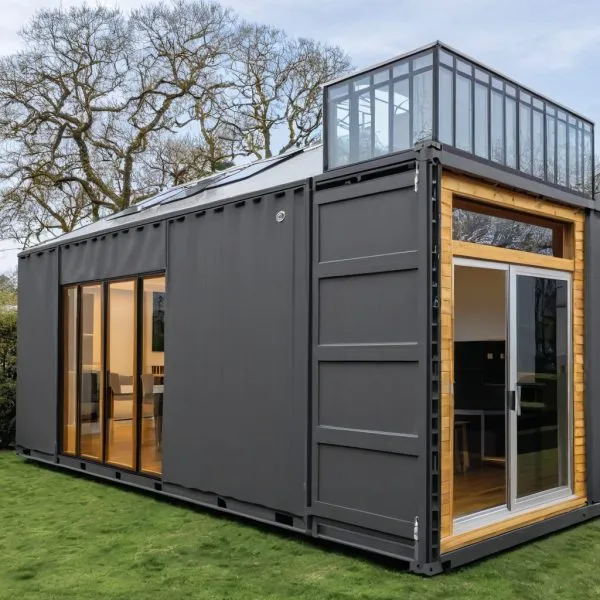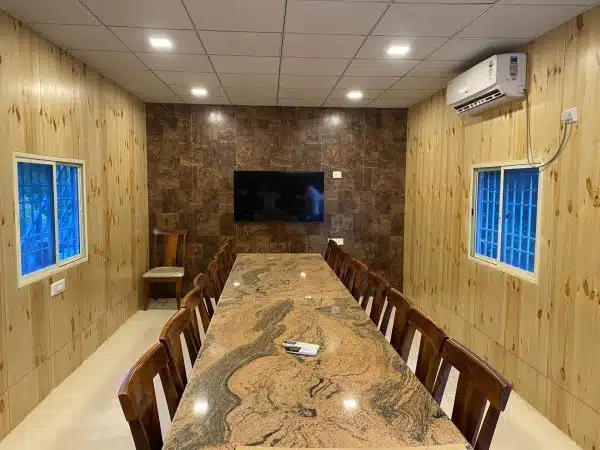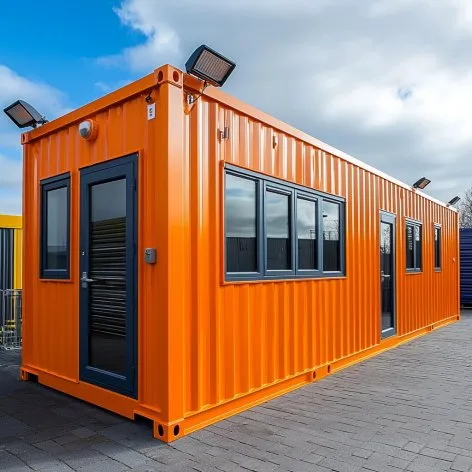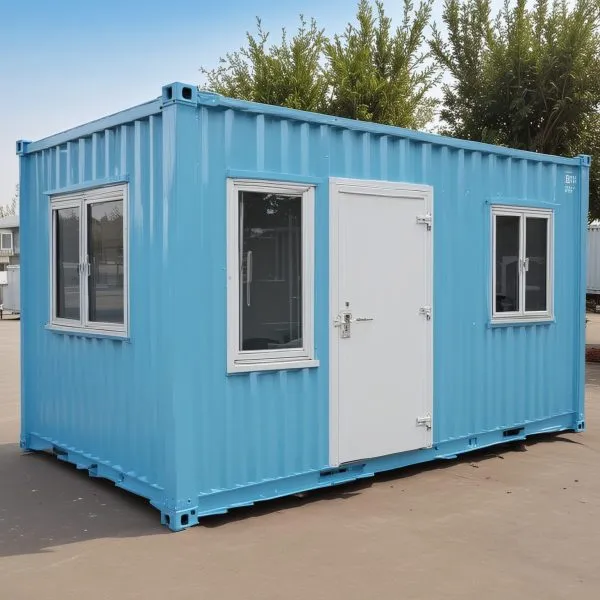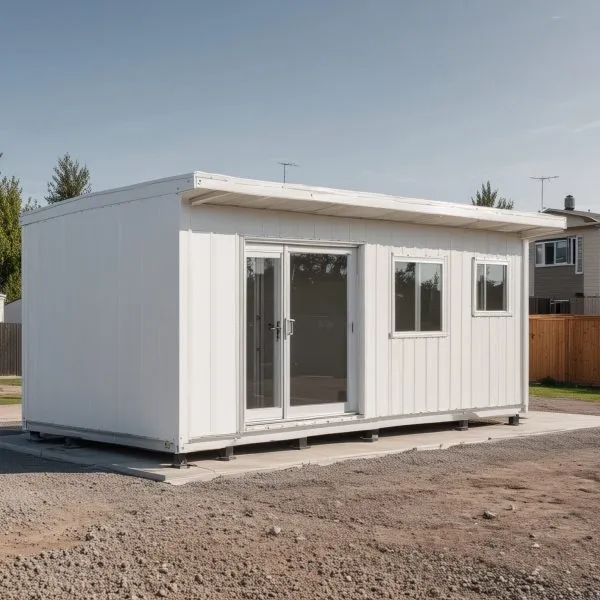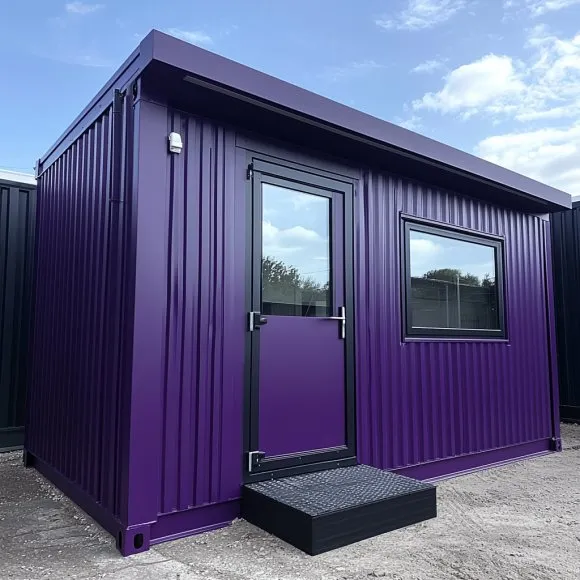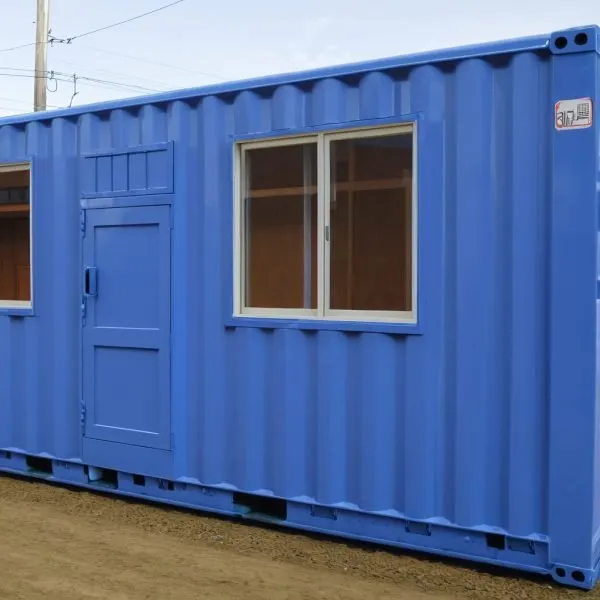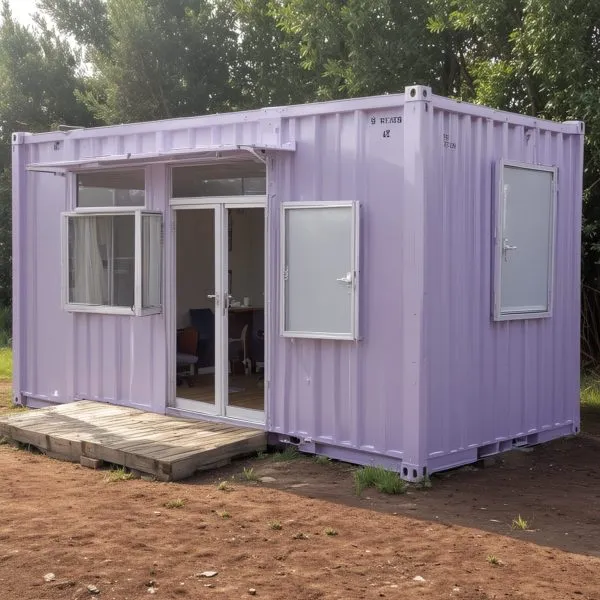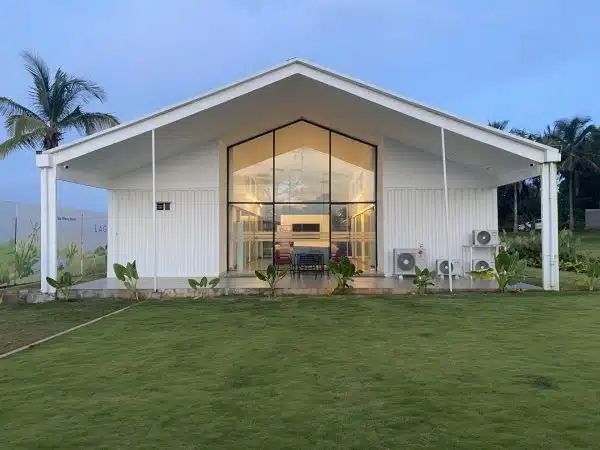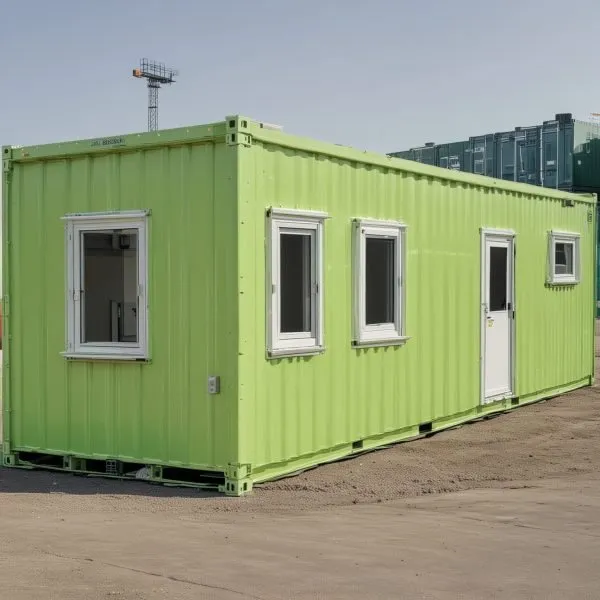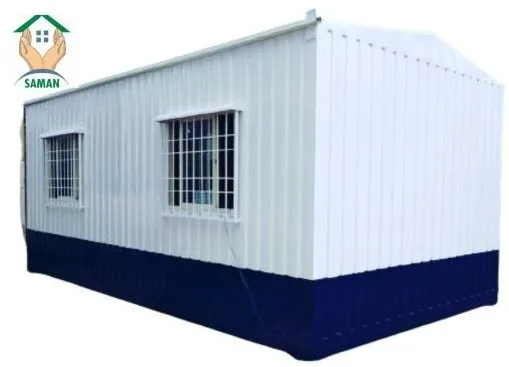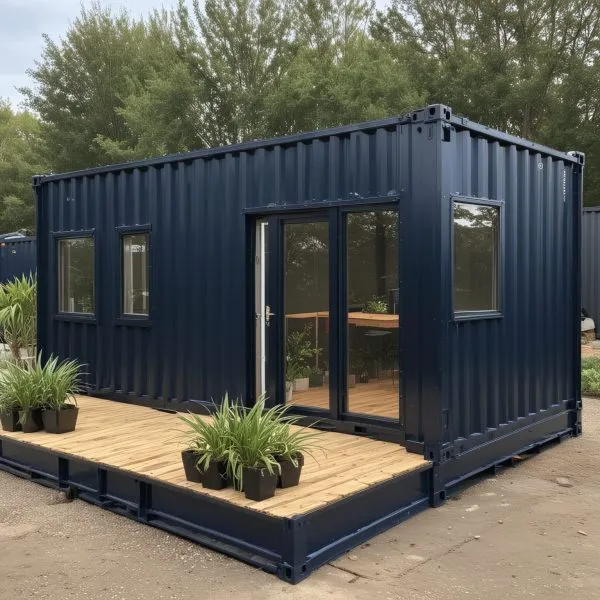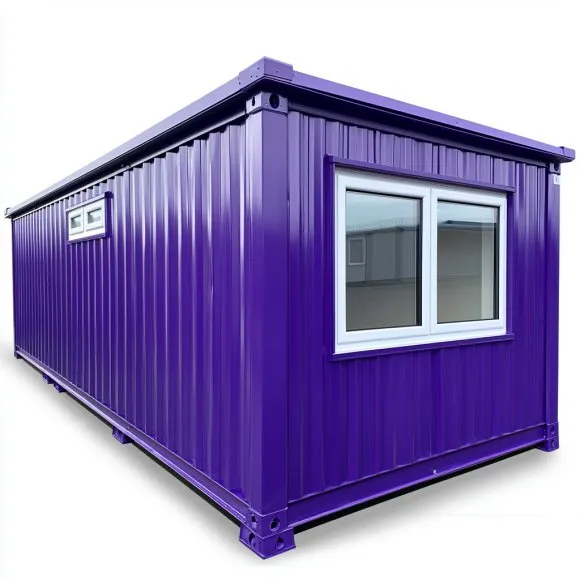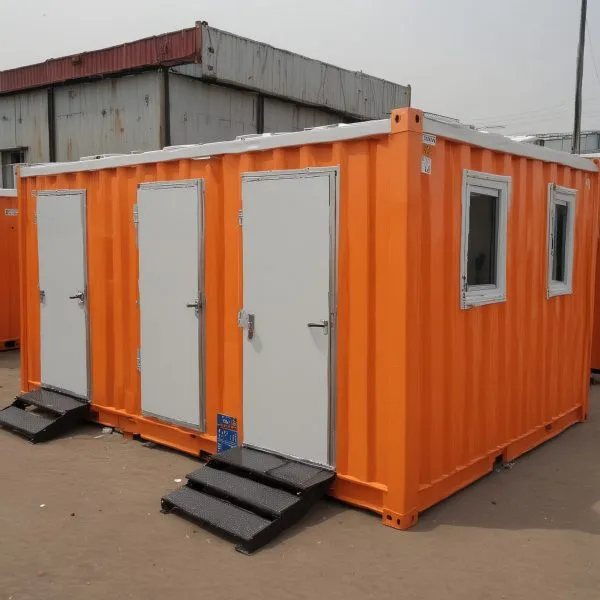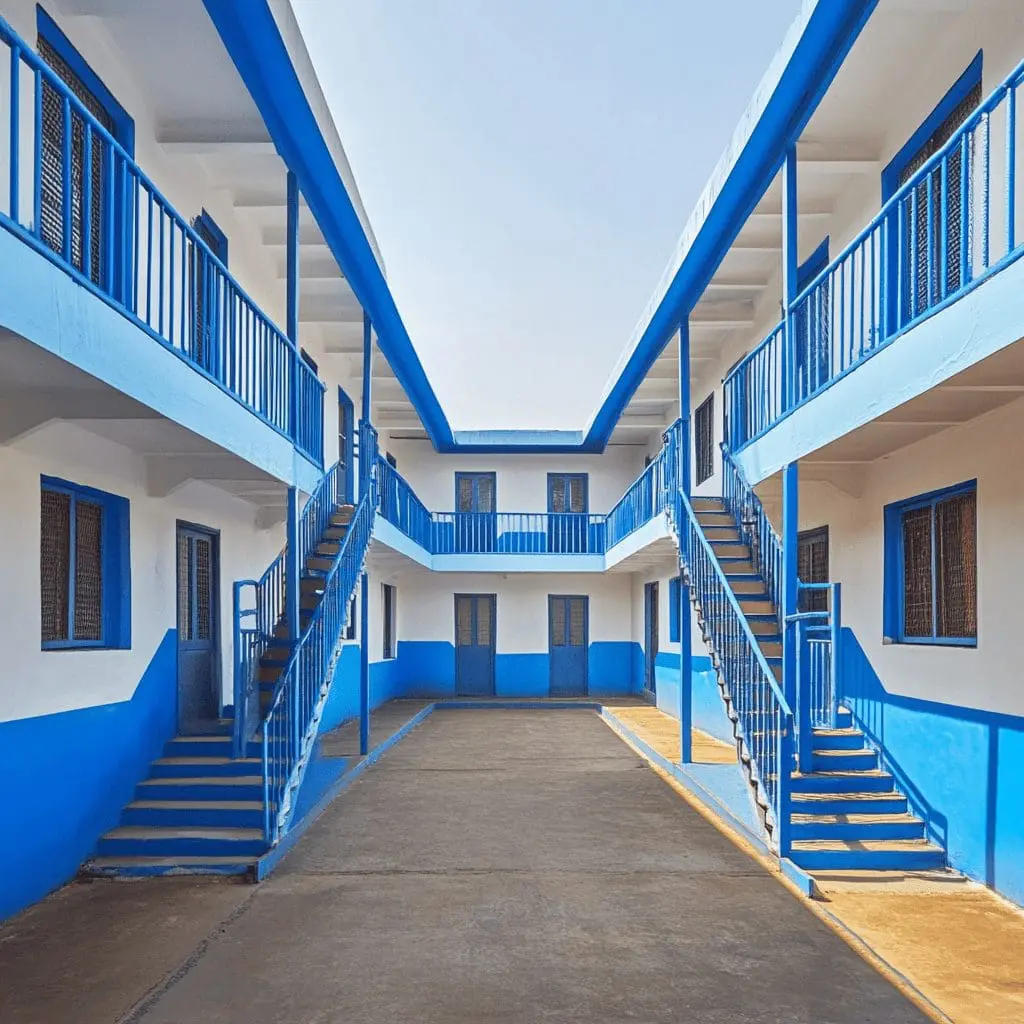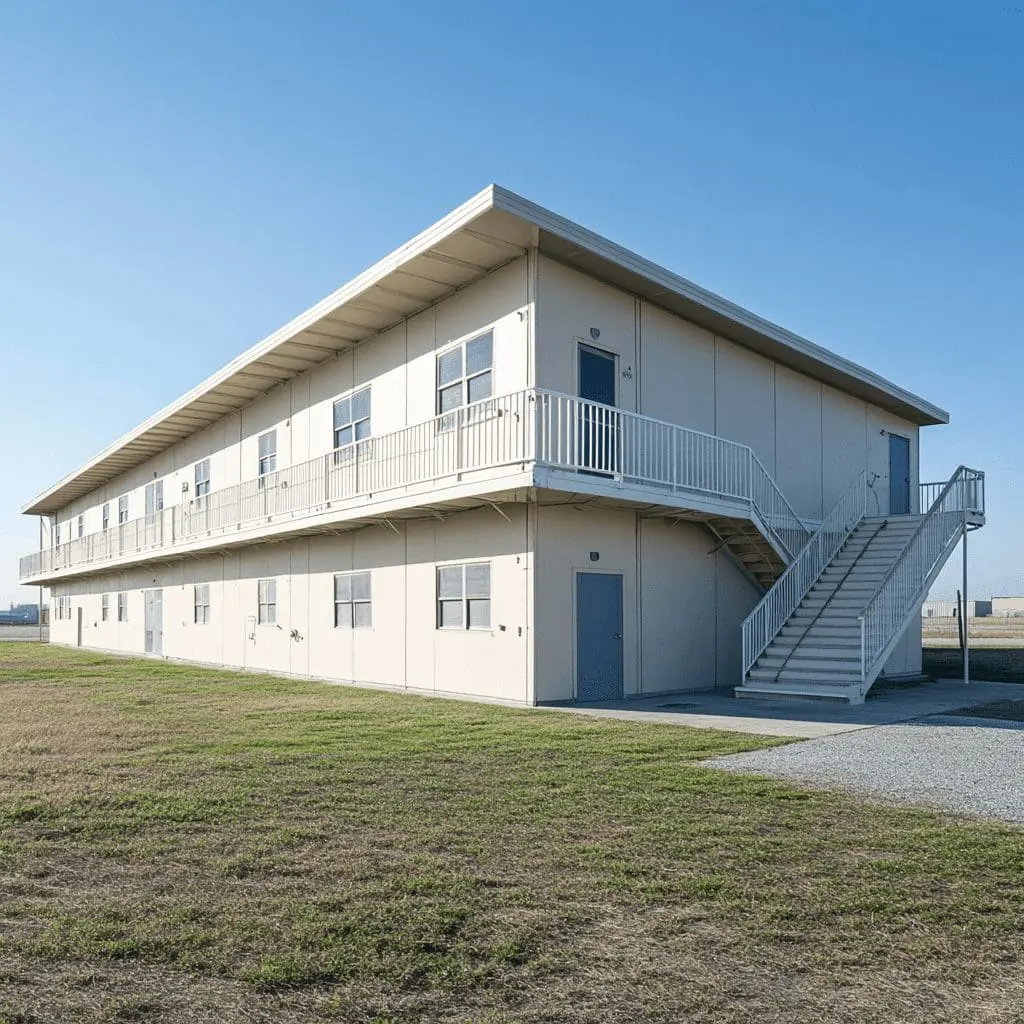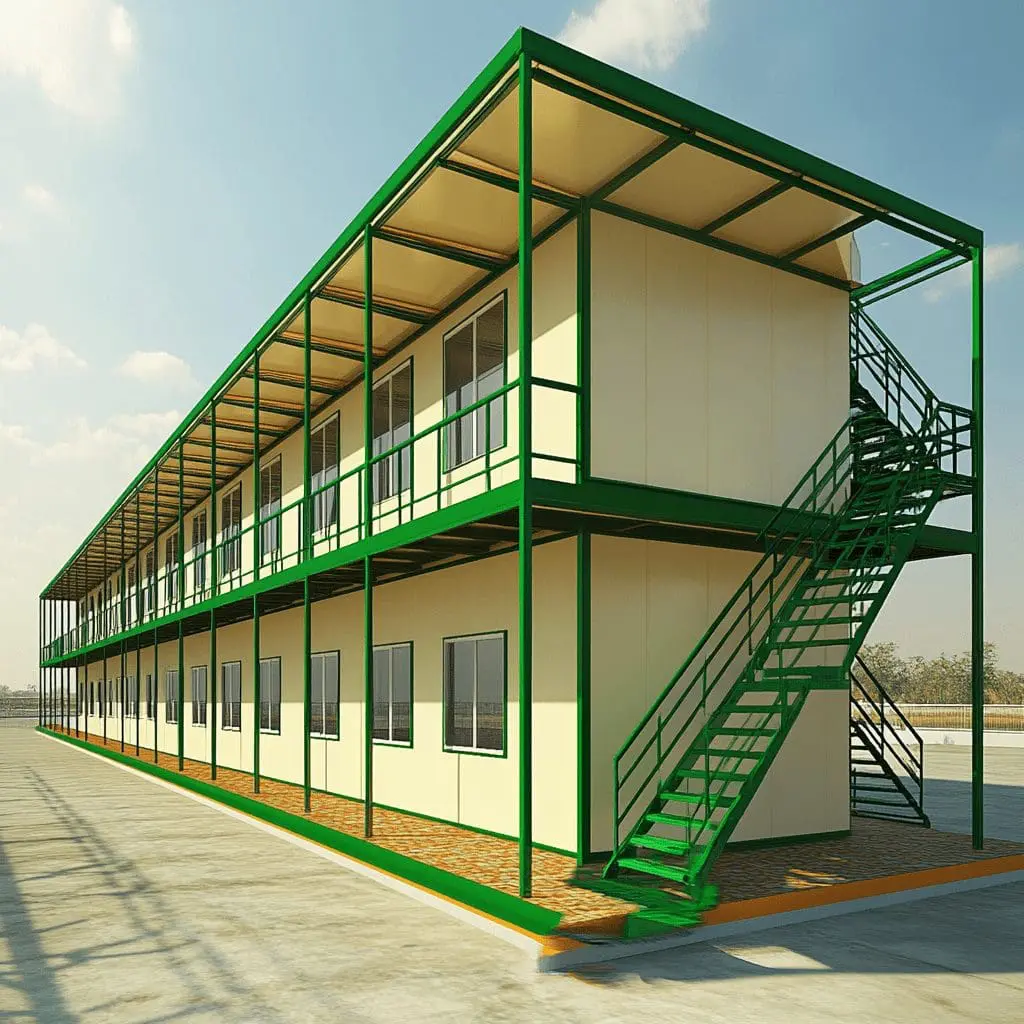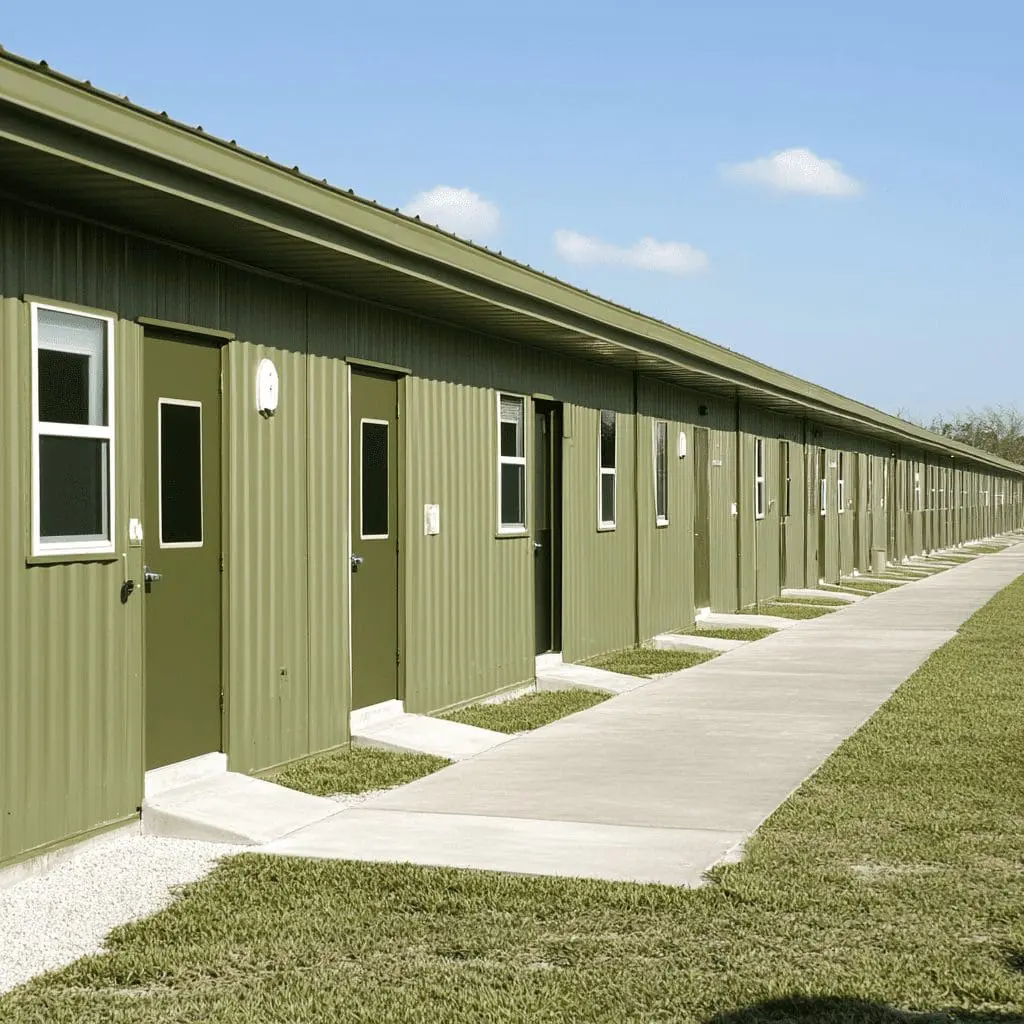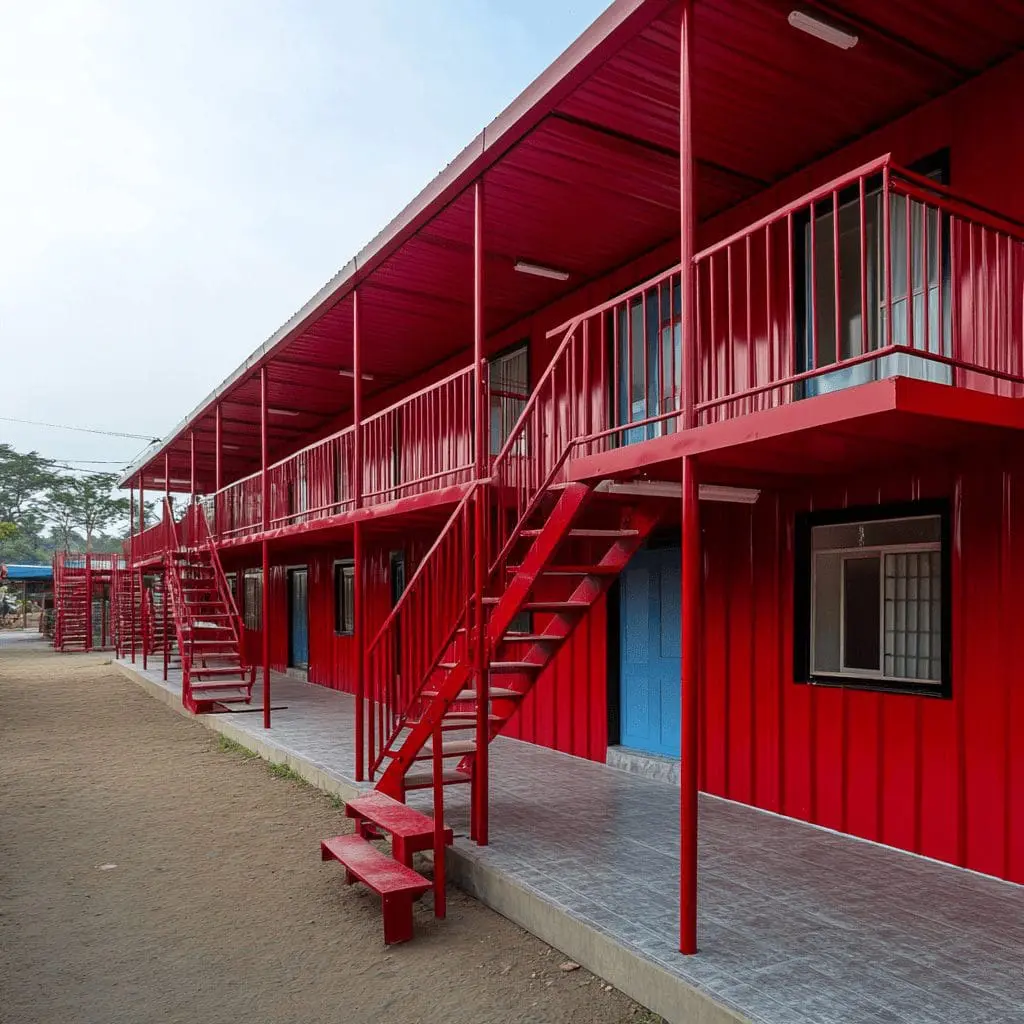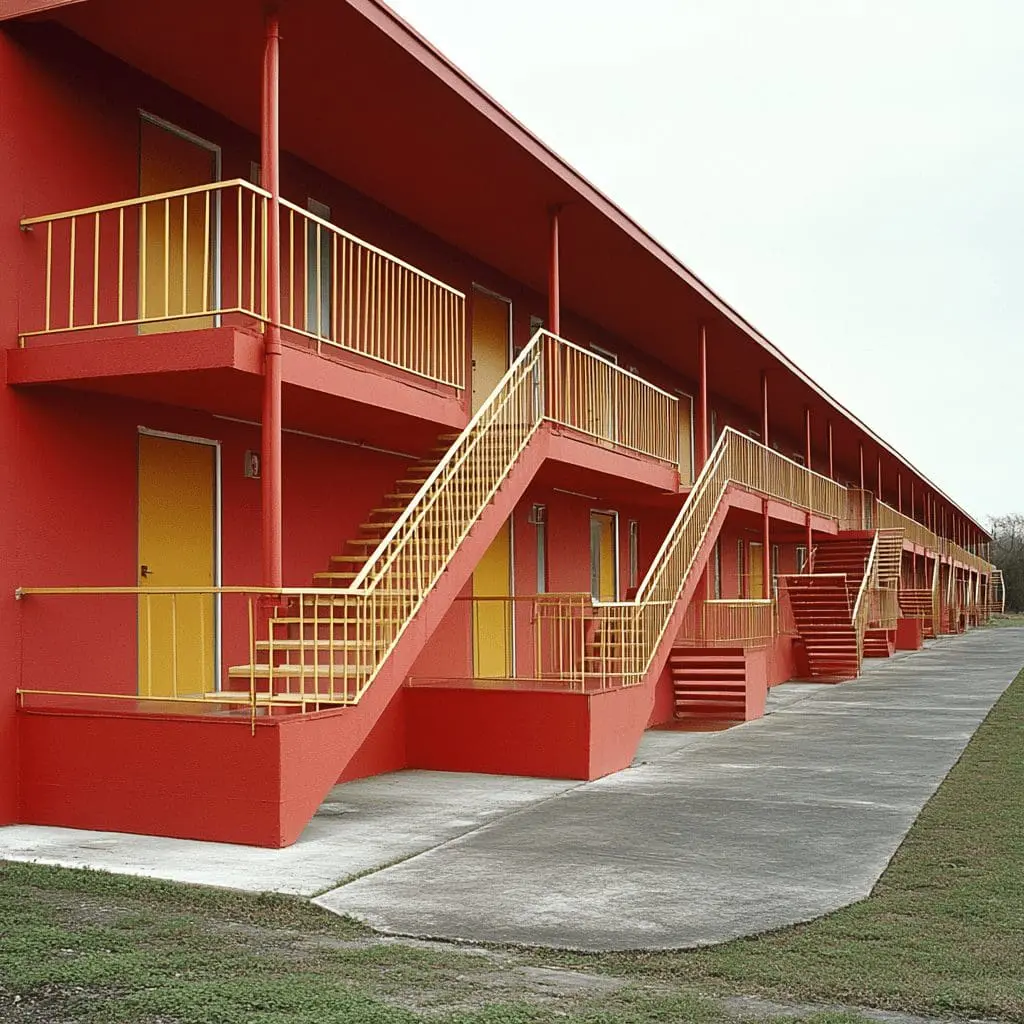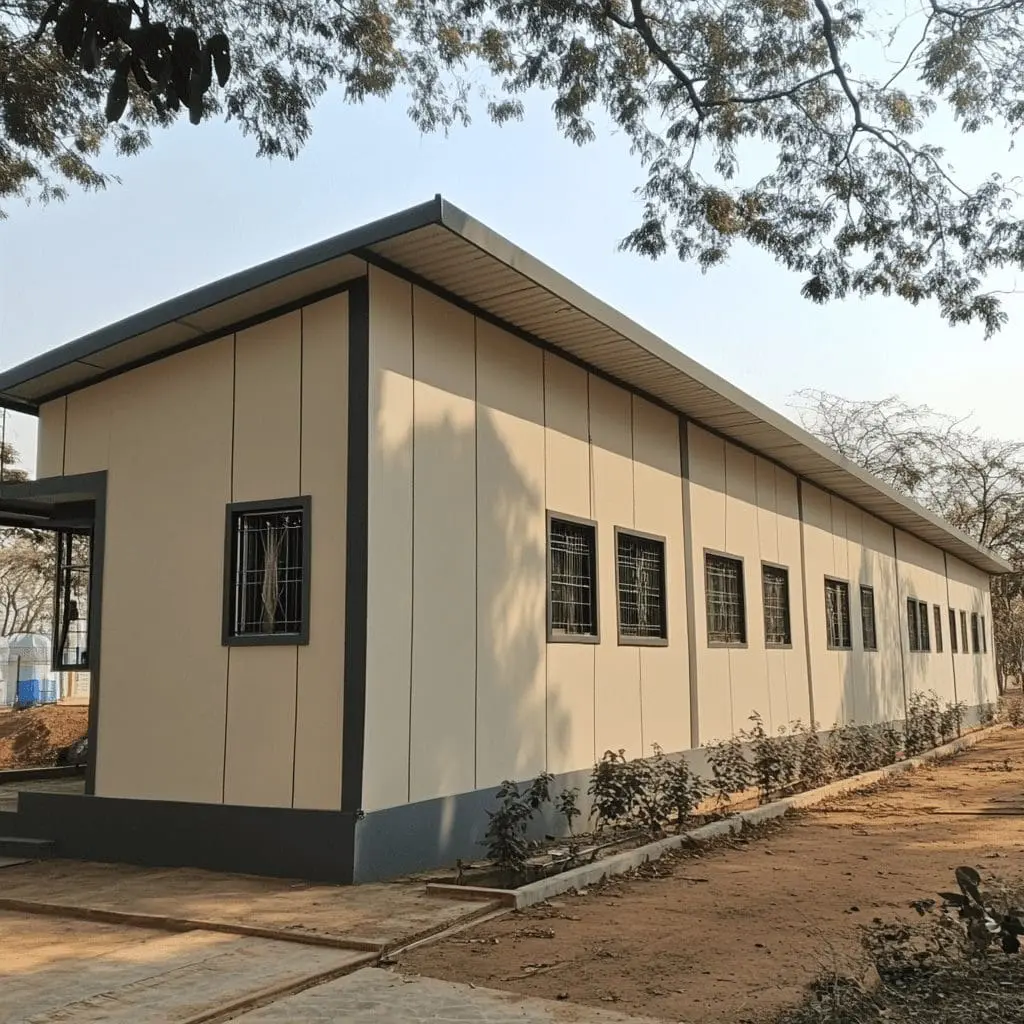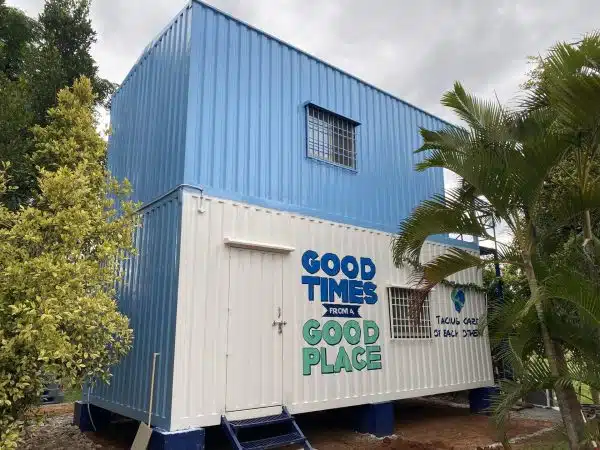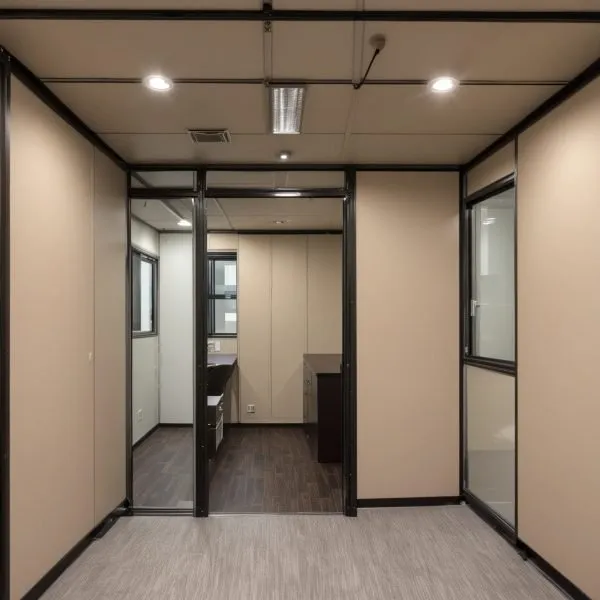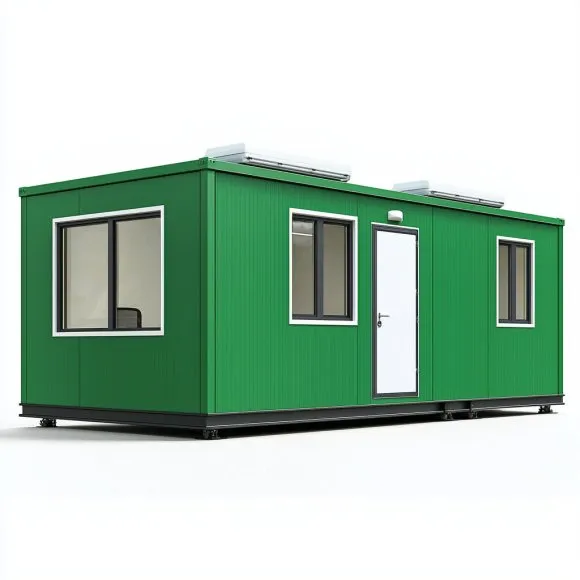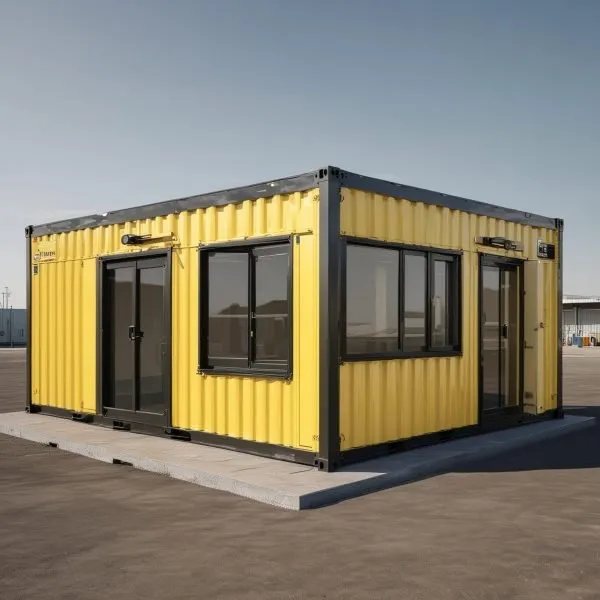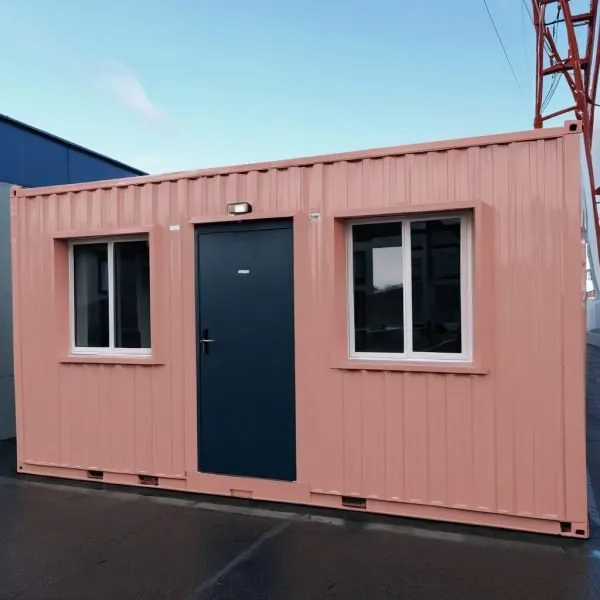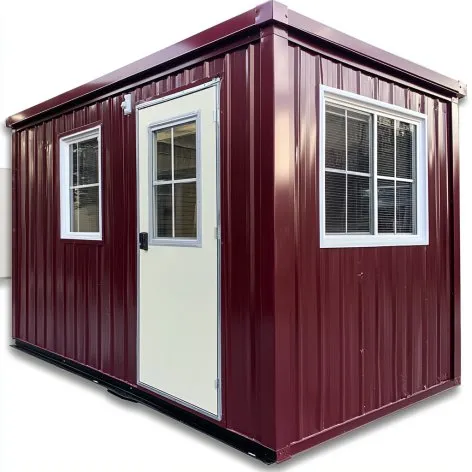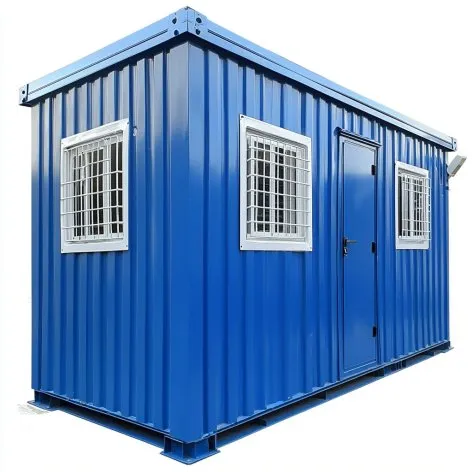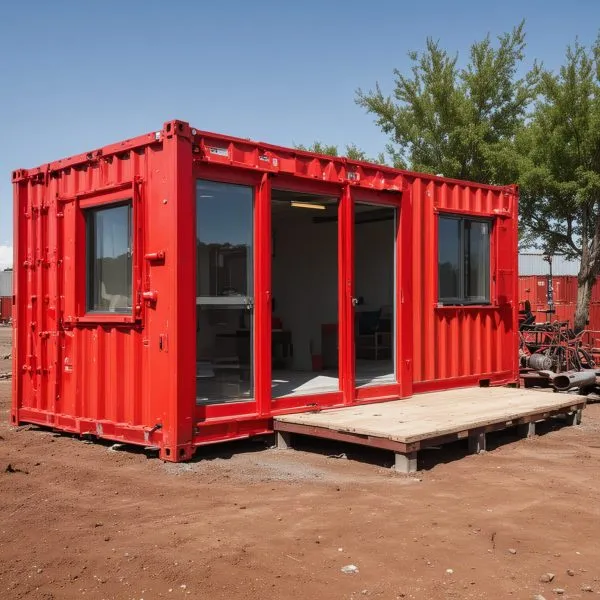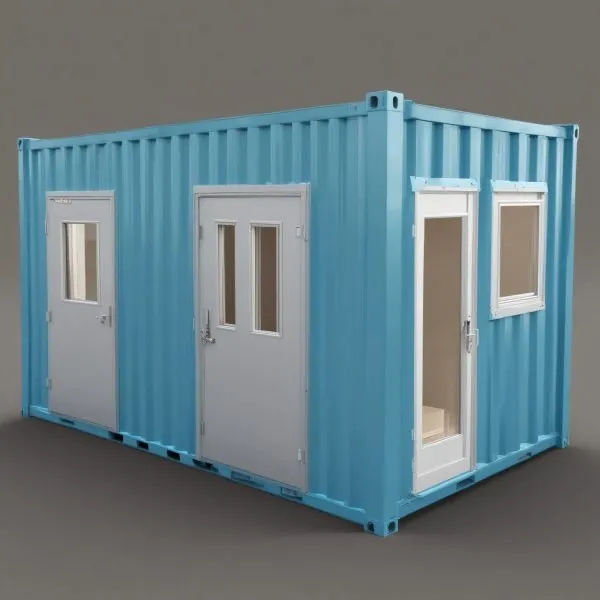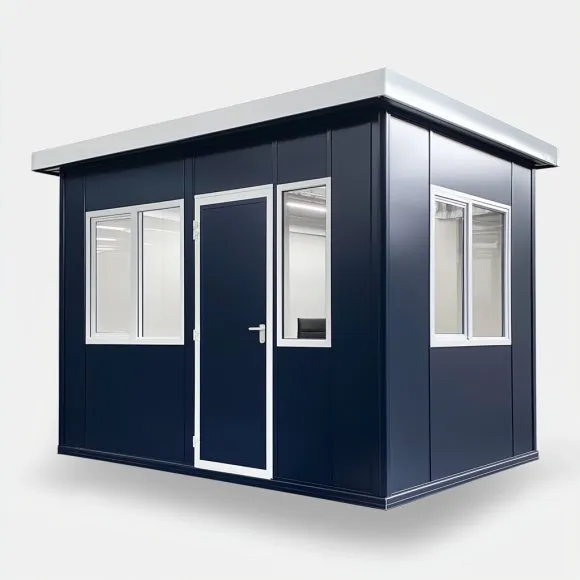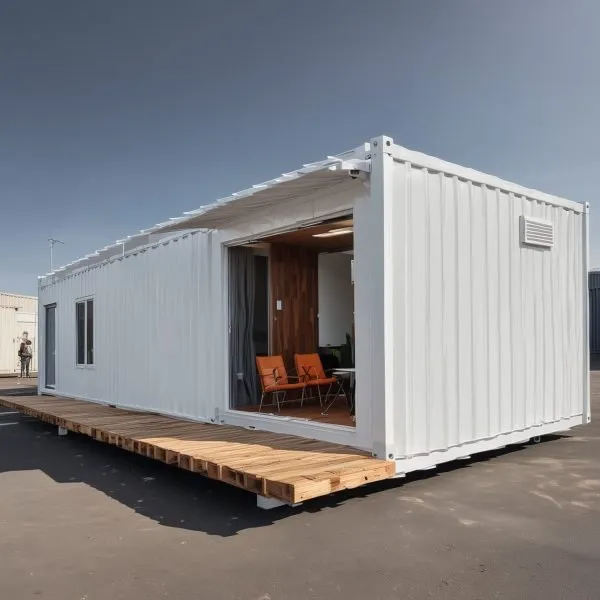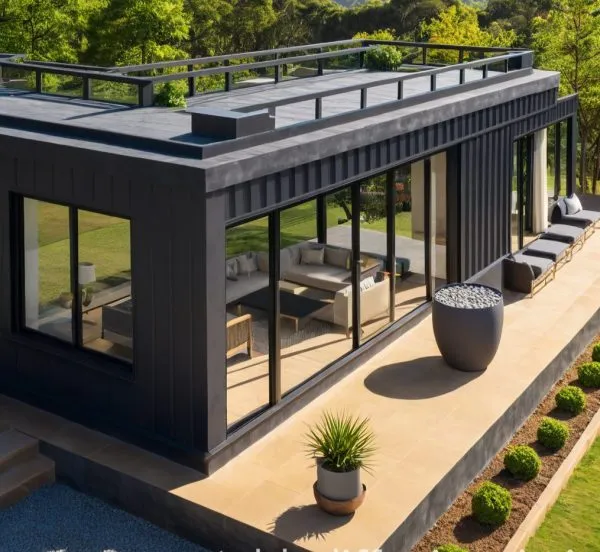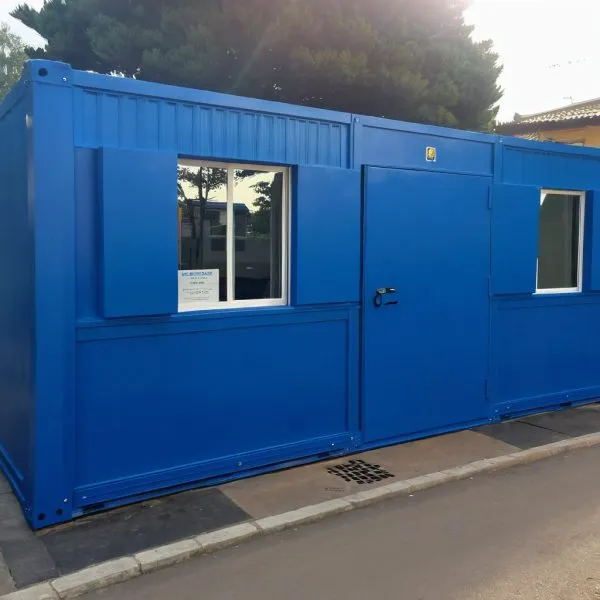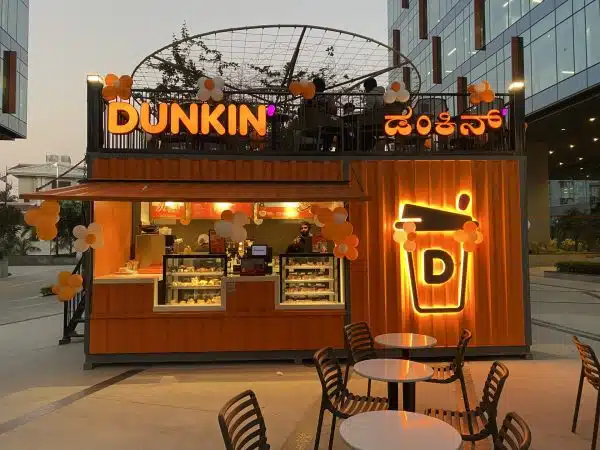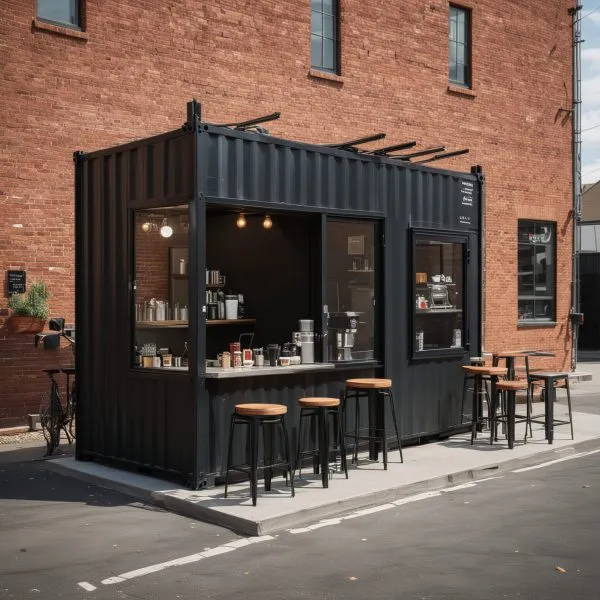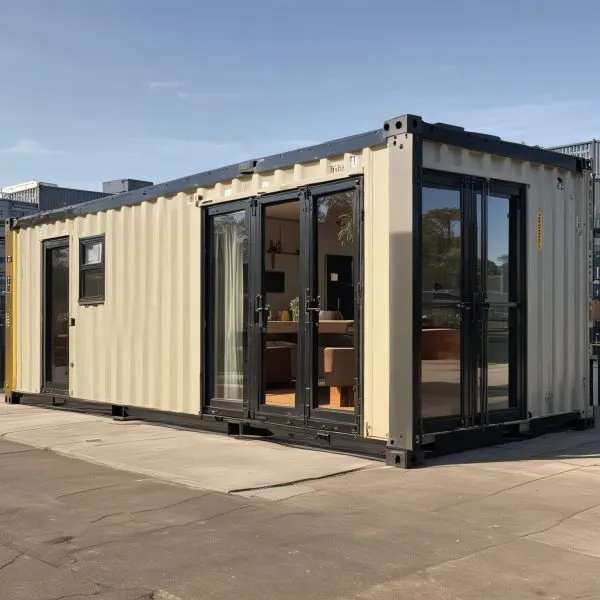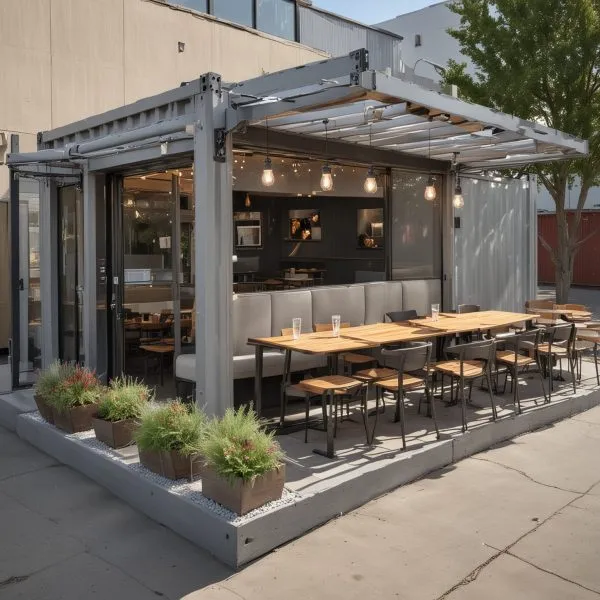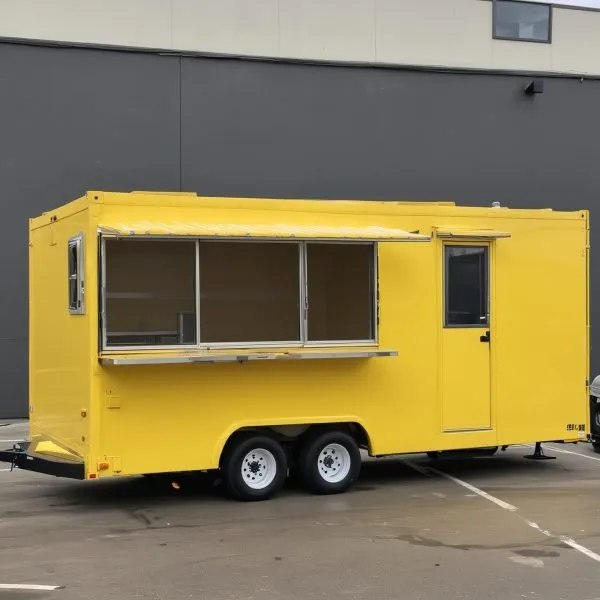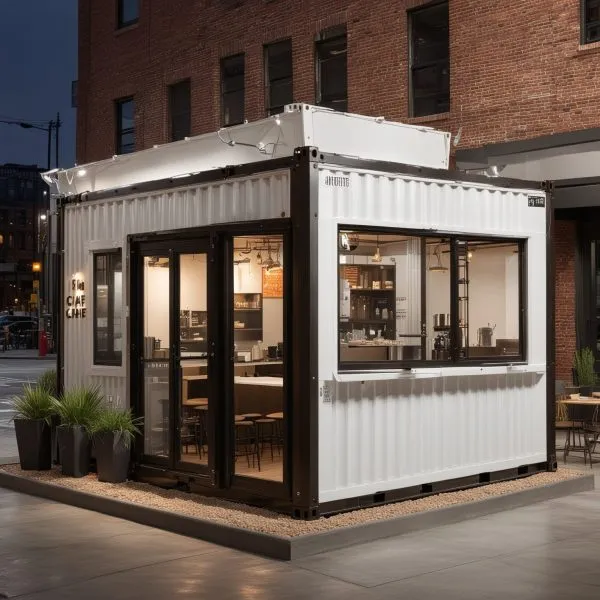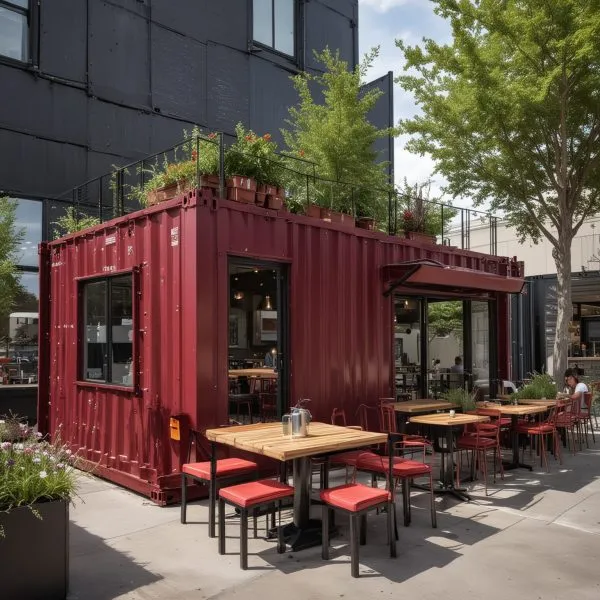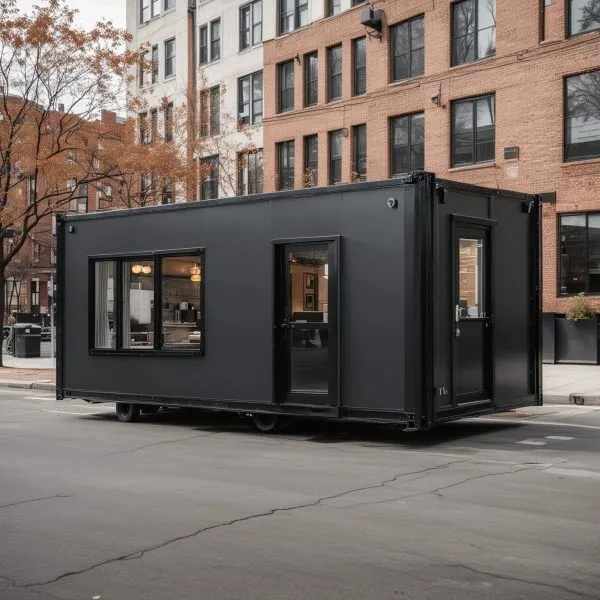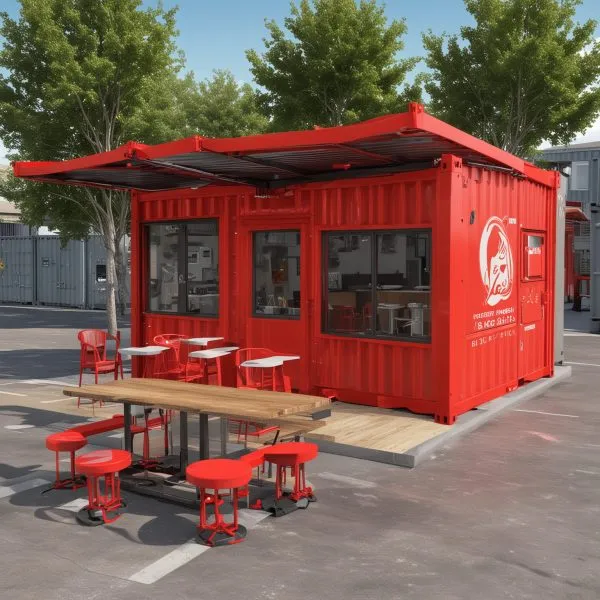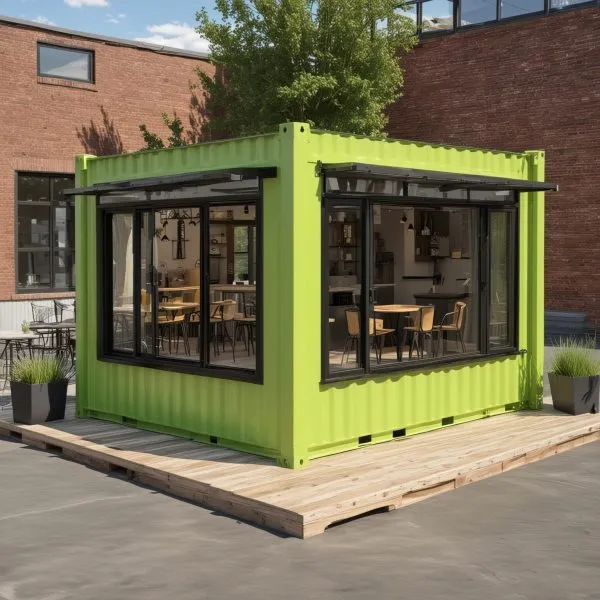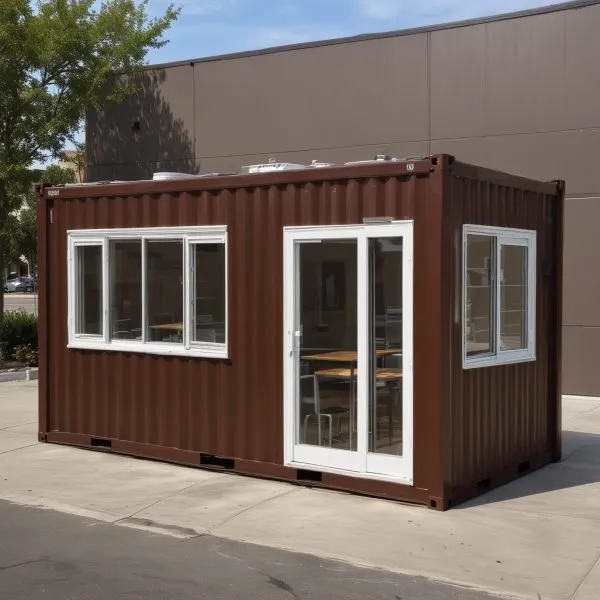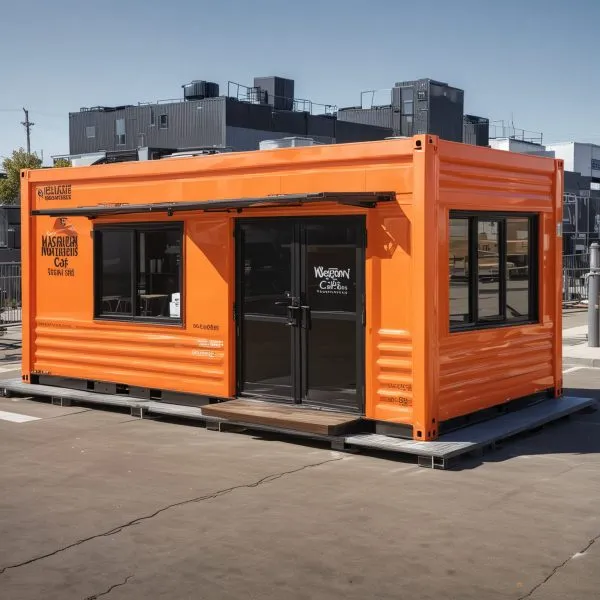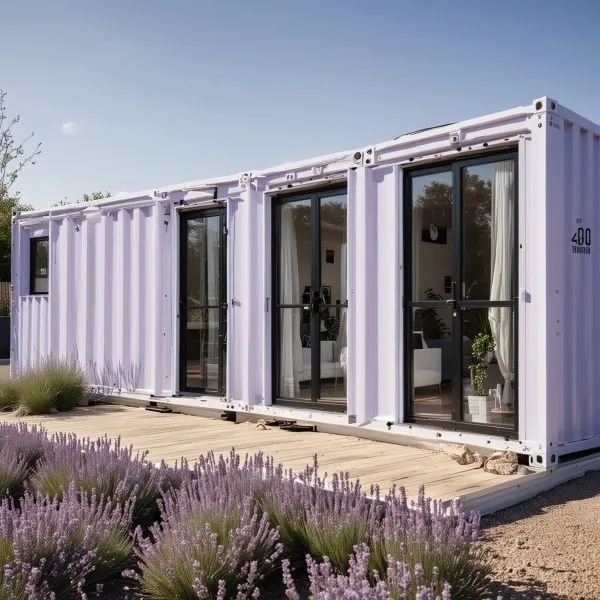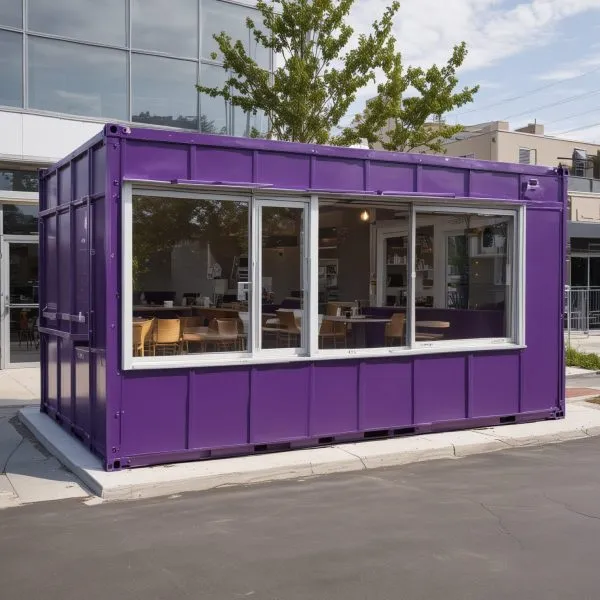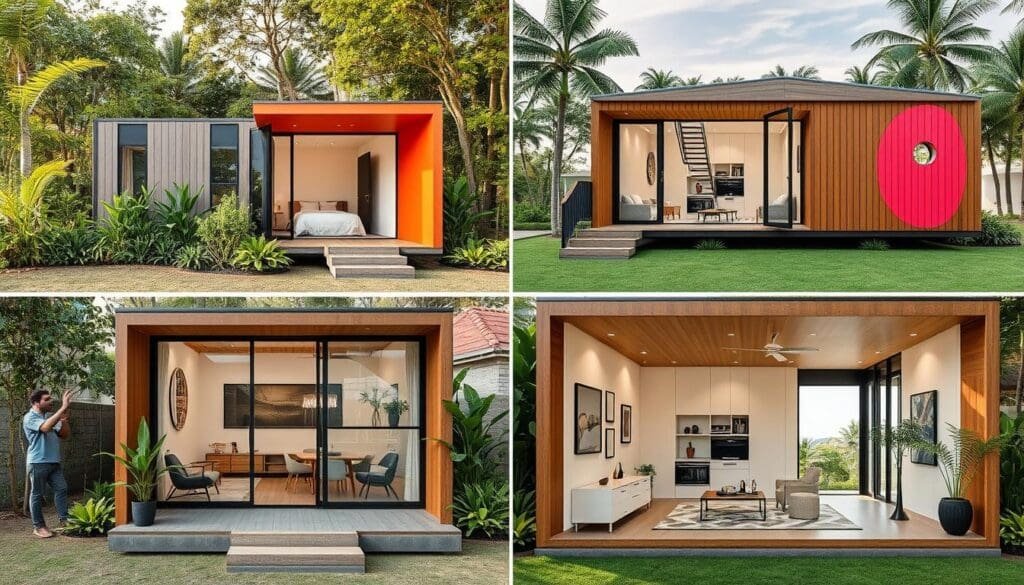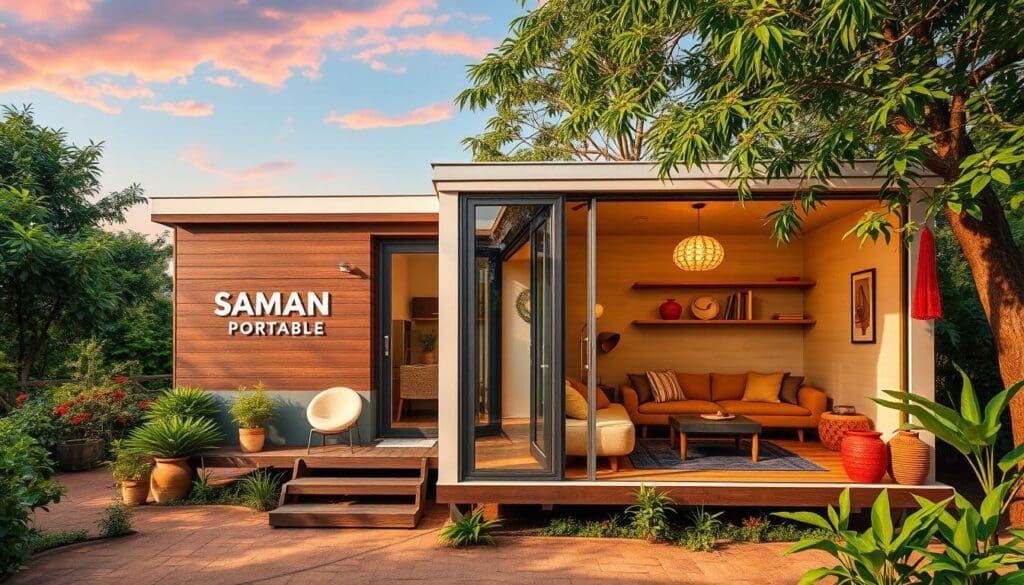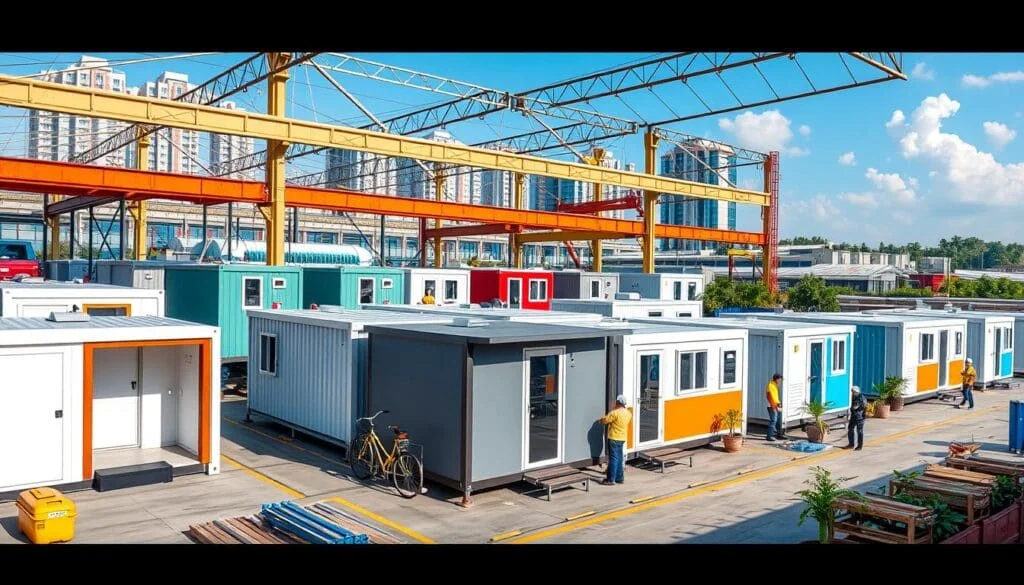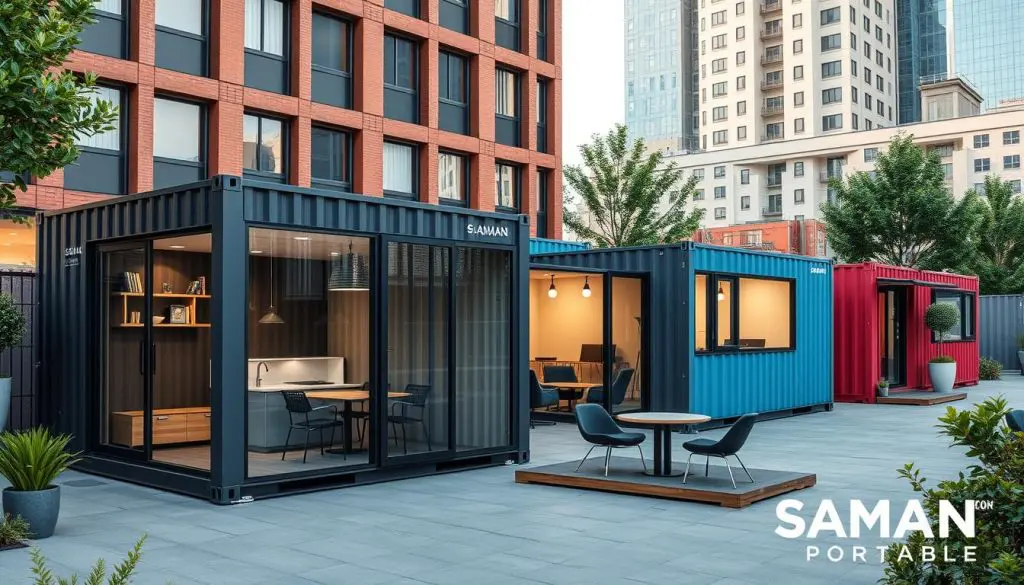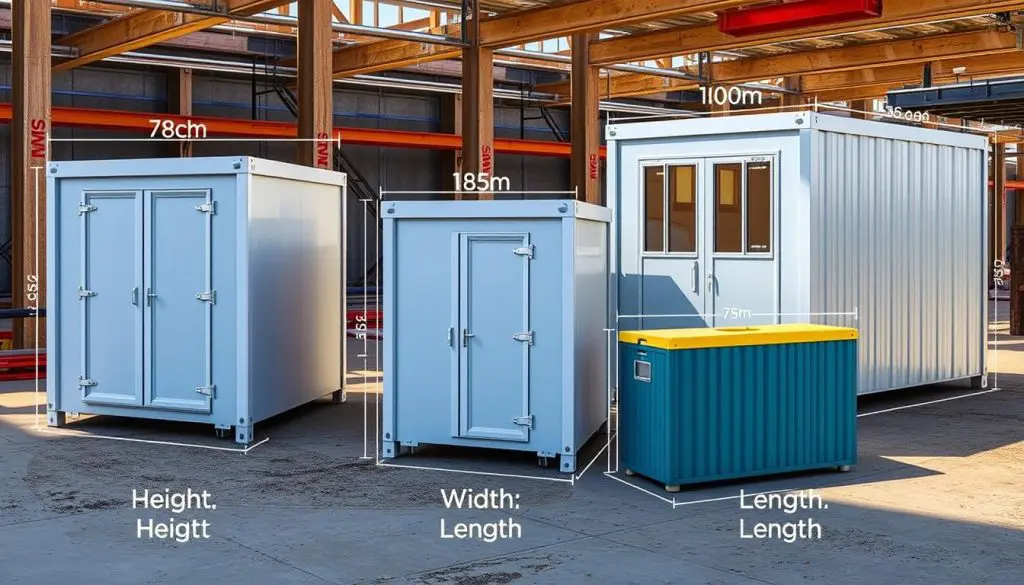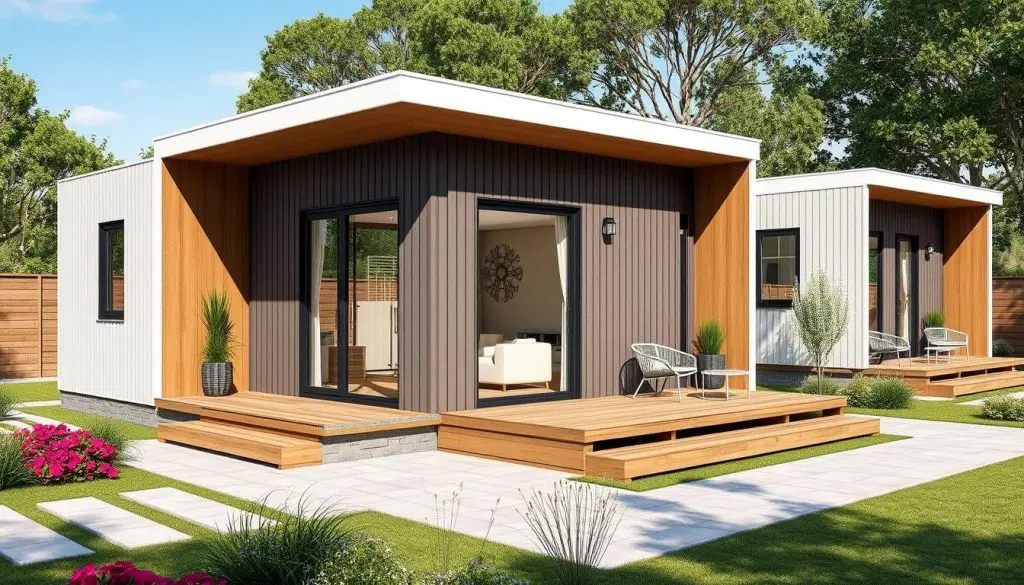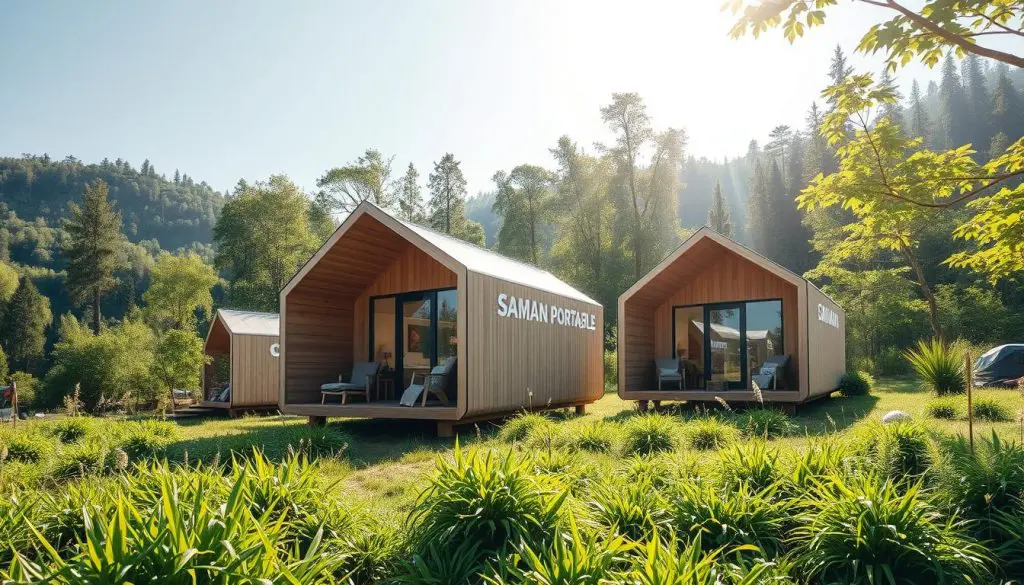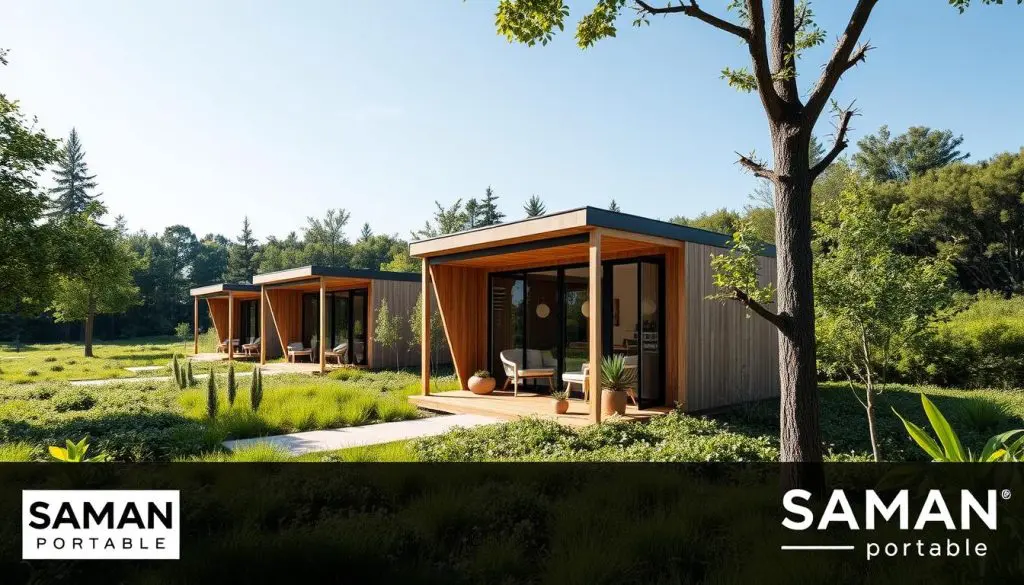Top Modular Furniture Types for Container Offices
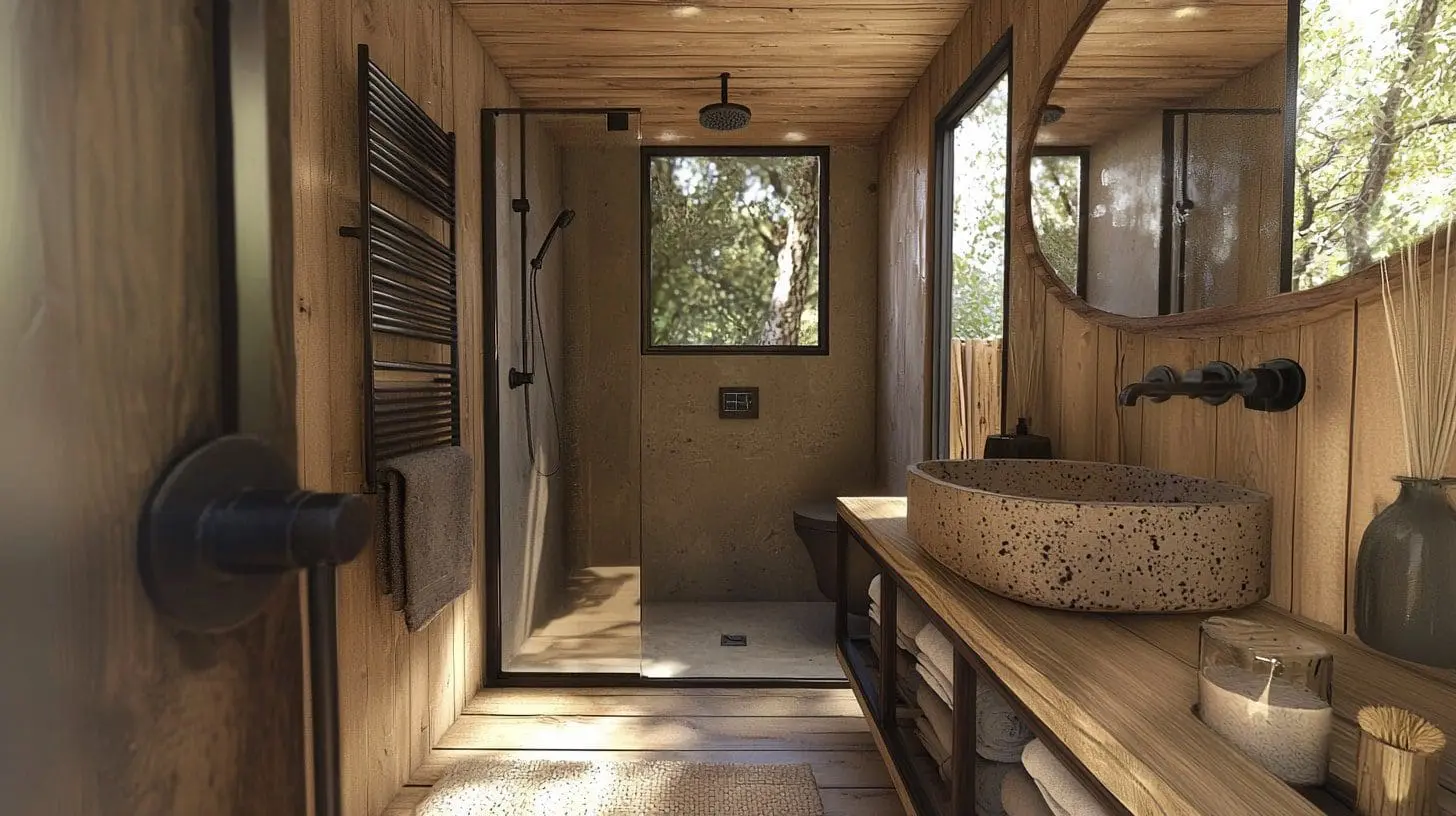
Types of Modular Furniture for Office Spaces
Selecting the right modular furniture for office setups is essential for creating functional and adaptable workspaces, especially within container offices. These furniture options are designed for flexibility, helping businesses optimize limited space while ensuring comfort and productivity. Here are some popular types of modular furniture suited for container office environments.
1. Office Modular Tables
Office modular tables are a staple in any workplace, providing essential surfaces for individual and collaborative work. These tables are available in a variety of sizes and designs, allowing businesses to choose options that match their workspace needs and aesthetic preferences. Many modular tables come with adjustable heights, foldable designs, and integrated storage, making them adaptable to different office functions. For example, a shared workspace may benefit from long, rectangular tables, while individual workstations may require smaller, compact options. To enhance office flexibility, office modular tables allow easy reconfiguration, supporting diverse work activities within a container office setup.
2. Modular Desks with Storage
Modular desks combine functionality with storage, making them ideal for small spaces where every square foot counts. These desks are often equipped with built-in drawers, shelves, or compartments that keep essential items within reach. In container offices, where floor space is limited, modular desks help employees stay organized and minimize clutter. Modular desks are also designed to be easily reconfigured or moved, which makes them a practical choice for businesses that need to adjust their layout frequently. Many companies using porta cabins as flexible office spaces also find modular desks helpful in maximizing productivity.
3. Readymade Office Furniture for Quick Setup
For businesses that need a rapid setup, readymade office furniture is a convenient solution. Unlike custom-built furniture, readymade pieces are available in standard sizes and designs, making them easy to install and relocate. Common types include modular chairs, tables, and storage units, which provide a functional workspace without the need for extensive planning or assembly. Readymade furniture is especially valuable in container offices, where a quick, adaptable setup is often required. These pieces can be mixed and matched with custom modular furniture, giving businesses the flexibility to create a cohesive office space on a budget.
4. Modular Seating Solutions
Seating is an important consideration for any office, and modular seating options provide comfort while maximizing space. Modular seating includes chairs, sofas, and benches that can be arranged in various configurations to suit collaborative or individual work needs. Ergonomically designed chairs ensure employee comfort, while modular benches and sofas provide seating for informal meetings and break areas. Container offices can benefit from stackable or foldable chairs, which offer extra seating when needed without taking up permanent space. Many modular furniture office solutions include seating that can be easily moved and rearranged, making them ideal for dynamic workspaces.
5. Multi-Purpose Storage Units
Storage is often a challenge in compact office environments, and modular storage units help keep spaces organized. These storage solutions include shelving, cabinets, and drawers that can be customized to fit specific needs. Modular storage units can be moved or stacked as needed, providing flexibility to adapt to changing office requirements. For container offices, modular storage units contribute to an organized workspace by keeping essentials neatly stored and accessible. Choosing storage that complements office modular furniture helps create a cohesive and efficient workspace.
By incorporating these types of modular furniture, businesses can transform their container offices into adaptable and productive environments. From office modular tables to versatile storage units, each piece is designed to enhance functionality within limited space, making modular furniture a smart choice for modern office setups. For more on creating modular workspaces, learn about us and our dedication to delivering quality modular solutions tailored to unique office needs.
Key Features to Look for in Modular Furniture for Office Spaces
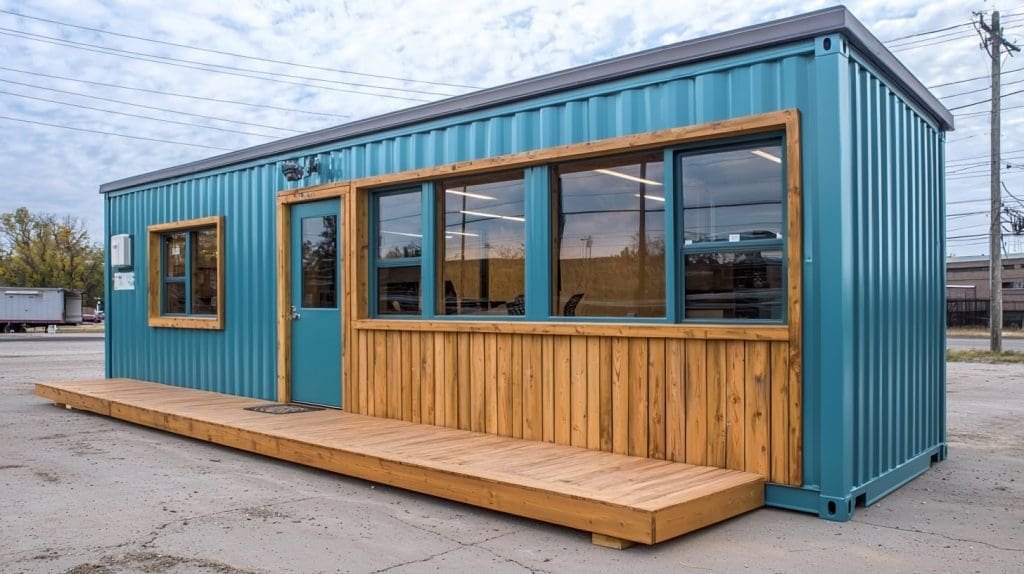
When choosing modular furniture for office settings, particularly in compact and flexible environments like container offices, certain features are essential for creating a functional and durable workspace. High-quality modular furniture not only maximizes space but also offers flexibility, comfort, and aesthetic appeal, enhancing the overall office experience. Here are some key features to consider when selecting modular furniture for container offices.
1. Durability and Sturdy Construction
Durable construction is crucial, especially for furniture that may need to be rearranged frequently. Look for modular pieces made with high-quality materials such as steel, hardwood, or reinforced plastics that withstand daily wear and tear. The strength of office modular furniture is particularly important in container offices, where space constraints can lead to higher usage of individual pieces. Choosing durable options ensures that your furniture maintains its quality and appearance over time, reducing the need for frequent replacements.
2. Compact and Space-Saving Design
One of the biggest advantages of modular furniture is its compact, space-saving design, making it ideal for small and flexible workspaces. For container offices, modular furniture office solutions like foldable tables, stackable chairs, and slim-profile desks help make the most of limited space. These pieces are easy to store, relocate, or reconfigure based on changing needs, providing businesses with the flexibility to maximize every square foot.
3. Easy Assembly and Reconfiguration
Modular furniture should be easy to assemble and rearrange, allowing for quick reconfigurations as needed. This feature is particularly valuable in dynamic office setups where the layout may change to accommodate different activities or team sizes. Many readymade office furniture pieces come with simple assembly instructions, enabling employees to set up or adjust the furniture without specialized tools or expertise. This flexibility makes modular furniture highly practical in container offices that require frequent adaptations.
4. Ergonomic Design for Comfort
Comfort is essential for maintaining productivity, especially in spaces where employees spend long hours. Ergonomically designed furniture, such as adjustable chairs, desks with proper height options, and supportive seating, enhances employee wellbeing. Modular furniture with ergonomic features is ideal for container offices, as it supports a healthy posture and reduces strain during the workday. Many reputable suppliers offer modular furniture for office environments that prioritize ergonomics, contributing to both comfort and productivity.
5. Customization Options for Brand Cohesion
Modular furniture can often be customized to reflect a company’s brand colors, style, or functionality preferences. Customization options may include finishes, colors, upholstery, and additional features like built-in storage or cable management. For businesses using porta cabins or container offices as branded workspaces, modular furniture customization helps create a cohesive and visually appealing environment that reflects the company’s identity.
6. Multi-Functional Pieces for Versatility
Multi-functional furniture pieces are highly beneficial for container office settings, where space is often limited. Options like tables with built-in storage, convertible desks, or modular seating that doubles as storage help optimize space without compromising functionality. Office modular furniture designed with multiple uses allows businesses to reduce the number of individual items needed, keeping the workspace clutter-free and efficient.
By selecting modular furniture with these key features, businesses can create container offices that are comfortable, functional, and flexible. From office modular tables to ergonomic seating, choosing furniture with durability, adaptability, and customization options helps transform compact spaces into productive work environments. For more information on modular solutions for office spaces, learn about us and explore our commitment to delivering high-quality, adaptable furniture designed for modern work needs.
Customization Options for Modular Furniture in Container Offices
One of the most significant advantages of modular furniture is its ability to be customized to fit specific business needs and brand aesthetics. In container offices, where space and functionality are key considerations, customization ensures that each piece of furniture enhances the usability and appeal of the workspace. Here are some top customization options for modular furniture for office environments.
1. Tailored Sizes and Layout Configurations
Container offices often have unique spatial constraints, making it essential to customize the size and configuration of modular furniture. Businesses can choose from a range of desk and table sizes to optimize floor space, ensuring that each office modular table or workstation fits seamlessly within the available area. This flexibility allows companies to design layouts that support both individual workstations and collaborative zones, creating a balanced workspace within limited square footage.
2. Adjustable Height and Multi-Purpose Tables
Customizable height options for tables and desks allow businesses to cater to different working preferences, such as sitting, standing, or collaborative tasks. Adjustable office modular tables enable employees to switch between seated and standing positions throughout the day, promoting a healthy work environment. Additionally, multi-purpose tables can be customized with foldable features, storage compartments, or wheels for easy mobility, making them suitable for container offices where versatility is essential.
3. Color and Finish Choices for Brand Alignment
For companies looking to maintain a cohesive brand image, customizing the color and finish of modular furniture is an effective way to reflect the company’s identity. Options like branded colors, wood grain finishes, or metallic accents can be applied to modular furniture office pieces, helping create a professional and visually appealing workspace. Matching the furniture style with the overall office decor, whether in a container office or porta cabin, enhances brand cohesion and gives a polished look to the environment.
4. Built-In Storage and Cable Management
Customizable storage solutions help keep container offices organized, minimizing clutter in small spaces. Many modular desks and tables come with the option to add built-in drawers, shelves, or under-table compartments for easy storage of office essentials. Additionally, cable management options, such as integrated cable trays or grommets, keep cords and wires neatly concealed, reducing hazards and creating a tidy workspace. These customization options are ideal for container offices, where space efficiency is crucial.
5. Ergonomic Features for Employee Comfort
Customizing modular furniture to include ergonomic features enhances employee comfort and productivity. Options like adjustable backrests, lumbar support, and cushioned seating allow companies to tailor office modular furniture to meet the comfort needs of their employees. Ergonomic adjustments can also be applied to desks and tables, with features like adjustable height or tilt options that support good posture. This focus on ergonomics is especially valuable in container offices, where efficient use of limited space is balanced with employee wellbeing.
6. Flexible Partitioning and Privacy Screens
In open container office layouts, customized partitioning or privacy screens allow employees to focus without distractions. Modular partitions can be attached to desks or positioned around workstations, creating a semi-private area that still allows interaction when needed. Privacy screens can be customized in various colors, heights, and materials, making them adaptable to specific office requirements. These partitioning options are beneficial for companies using modular furniture for office setups that balance collaboration and focused work.
By leveraging these customization options, businesses can ensure their modular furniture aligns with both functional needs and brand aesthetics. From adjustable tables to storage-friendly desks, customized office modular furniture allows companies to maximize space while maintaining a comfortable and stylish environment. For more insights on customizing modular furniture to enhance your container office, learn more about us and explore how we tailor modular solutions for modern workplaces.
Cost Considerations for Modular Office Furniture in Container Offices
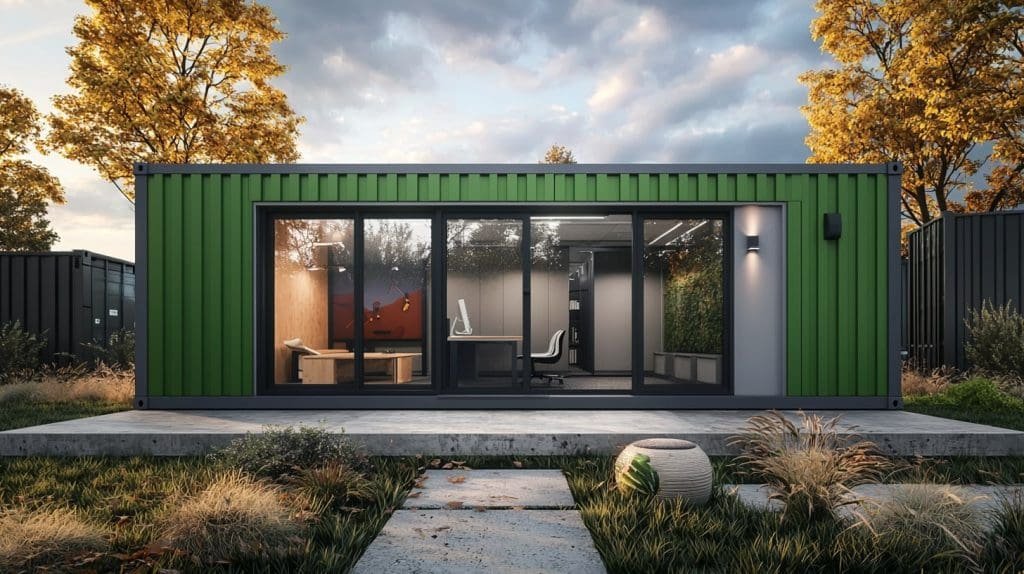
Investing in modular furniture for office spaces within container environments involves understanding various cost factors. By being aware of these considerations, businesses can make informed choices that align with their budget while achieving the desired functionality and quality. Here’s a breakdown of key factors that impact the cost of modular office furniture.
1. Material Quality and Durability
The materials used in modular furniture play a significant role in determining cost. High-quality materials, such as solid wood, metal, and reinforced plastics, are typically more expensive but offer greater durability and longevity. For container offices, which may experience high usage and regular reconfigurations, investing in durable materials ensures that the modular furniture office setup remains intact and functional over time. Businesses that prioritize quality materials can expect a higher upfront cost but benefit from reduced repair and replacement expenses in the long run.
2. Customization and Specialized Features
Customization is another major factor affecting the cost of modular office furniture. Custom features, such as built-in storage, adjustable heights, or ergonomic components, add to the initial price. For instance, an office modular table with height adjustability or integrated cable management will likely cost more than a standard model. While these features may increase upfront costs, they offer significant advantages in functionality and productivity, making them a valuable investment for container offices.
3. Modular Design Complexity and Multi-Functionality
The design complexity and versatility of modular furniture pieces can also impact pricing. Furniture that serves multiple purposes—like tables that double as storage units or desks that convert into collaborative workspaces—may come at a premium due to their intricate design and additional functionality. Businesses that require readymade office furniture with multi-functional capabilities may find higher costs justified by the added versatility these pieces bring to a container office setup.
4. Size and Quantity of Furniture Pieces
The size and quantity of modular furniture pieces needed will naturally influence the total cost. Larger desks, extensive shelving units, or a high number of office chairs can increase overall expenses. For container offices where space is limited, smaller, compact pieces may offer a cost-effective solution. Working with a modular furniture provider allows businesses to choose furniture sizes that optimize available space without exceeding budget limits.
5. Shipping and Installation Expenses
Shipping and installation are additional costs to consider when purchasing modular furniture, especially for container office setups. Some suppliers may include these services, while others charge separately based on location and the number of items ordered. Installation fees can vary depending on the complexity of the furniture assembly. Choosing readymade office furniture can help reduce installation costs, as these pieces are often designed for easy setup, allowing businesses to save on assembly services.
6. Warranty and After-Sales Support
Modular furniture with warranties or extended after-sales support may come at a higher price but offers peace of mind and potential savings on repairs and replacements. A reputable modular furniture provider may include support packages, ensuring that businesses can maintain their office furniture without unexpected expenses. For container offices, where furniture may be subject to frequent moves or reconfigurations, having reliable after-sales support can be a wise investment.
By understanding these cost factors, businesses can plan their budget for modular furniture for office spaces effectively. While some features and materials may increase the initial cost, they offer long-term benefits in terms of durability, functionality, and adaptability, making them valuable for container office environments. For more guidance on selecting modular furniture that balances quality and cost, explore our offerings and discover adaptable solutions that fit a range of budgets and office needs.
Choosing the Right Office Modular Table for Your Workspace
The office modular table is a cornerstone of any workspace, offering a versatile and functional surface for individual and collaborative tasks. Selecting the right modular table is particularly important for container offices, where space optimization and flexibility are essential. Here’s a guide to help you choose an office modular table that suits your workspace’s needs and enhances productivity.
1. Consider the Table Size and Shape for Space Optimization
The size and shape of an office modular table can greatly influence how well it fits within a container office. For example, rectangular tables are ideal for team meetings, while smaller, square or circular tables may work better for individual workstations or compact collaborative areas. In container offices, where every square foot matters, opting for a table that complements the layout without crowding the space ensures efficient use of the workspace.
2. Adjustable Height for Comfort and Versatility
Adjustable height is a sought-after feature in modern office tables, allowing employees to switch between sitting and standing positions. This flexibility not only promotes health benefits by reducing sedentary time but also caters to different working preferences. Adjustable-height tables are particularly beneficial in modular furniture office setups, where they can be quickly reconfigured for various tasks, enhancing versatility within a limited space.
3. Foldable and Mobile Options for Dynamic Layouts
For offices that frequently change layouts or need to clear space for events, foldable or mobile modular tables are ideal. Tables with foldable designs or wheels enable quick and easy reconfiguration, making them perfect for container offices where flexibility is key. Foldable office modular tables allow businesses to adapt the workspace for meetings, presentations, or group activities, supporting a dynamic work environment within compact office setups.
4. Built-In Storage for Organized Workspaces
Some modular tables come with built-in storage, such as shelves, drawers, or under-table compartments, helping keep essential items within reach. This feature is especially valuable in container offices, where space is often limited and clutter needs to be minimized. Tables with storage options support an organized workspace, allowing employees to store documents, supplies, and personal items directly at their workstation, enhancing productivity and reducing clutter.
5. Cable Management for Clean and Safe Work Areas
With technology playing a significant role in modern offices, cable management is an important feature for maintaining a clean and safe workspace. Look for modular tables with integrated cable trays, grommets, or cable channels that keep cords organized and out of sight. This feature is essential for office modular furniture setups that involve multiple devices, as it prevents tripping hazards and keeps the workspace tidy and professional.
6. Material and Finish for Durability and Style
The material and finish of a modular table impact both its durability and aesthetic appeal. For container offices, tables made from high-quality materials such as laminate, metal, or solid wood provide durability while withstanding daily use. Additionally, choosing a finish that aligns with the office’s overall decor, whether it’s a sleek metallic look or a warm wood tone, can enhance the ambiance and professionalism of the workspace. By selecting materials that are both durable and stylish, businesses create a workspace that reflects their brand while withstanding the demands of daily use.
By considering these factors, businesses can choose an office modular table that not only meets functional requirements but also complements the container office’s layout and design. Whether it’s an adjustable table for flexibility, a foldable option for mobility, or a model with storage and cable management, selecting the right modular table enhances productivity and supports an organized, adaptable workspace. For more insights on choosing modular furniture for modern offices, learn about us and discover solutions tailored to container-based office environments.
How Modular Furniture Enhances Collaboration and Productivity in Container Offices
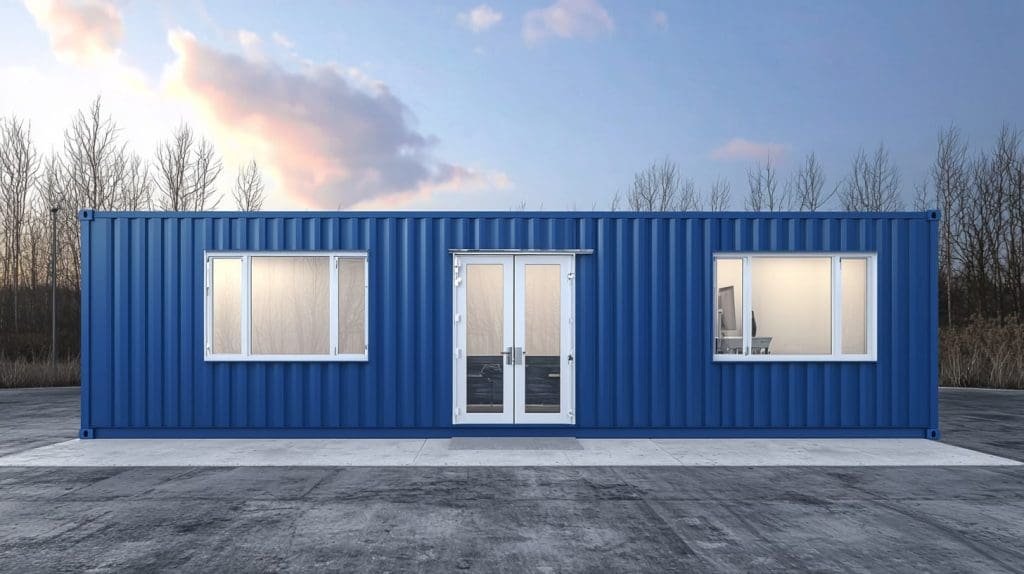
Modular furniture plays a significant role in fostering a collaborative and productive work environment, especially in compact setups like container offices. By enabling flexibility, adaptability, and smart space management, modular furniture for office spaces allows teams to work together seamlessly while maximizing limited square footage. Here’s how modular furniture enhances collaboration and boosts productivity in container office environments.
1. Adaptable Layouts for Dynamic Team Interactions
One of the main benefits of modular furniture is its adaptability, allowing businesses to arrange and rearrange layouts as needed. This flexibility is essential in container offices, where space constraints make it crucial to use every inch effectively. With modular tables, seating, and desks, teams can quickly set up spaces for meetings, brainstorming sessions, or group tasks, then reconfigure the area for individual work. By accommodating various layouts, modular furniture office setups support a dynamic work environment that encourages teamwork and collaboration.
2. Movable and Stackable Furniture for Flexible Use
Movable and stackable furniture enhances flexibility by allowing employees to reconfigure the workspace based on their needs. For instance, stackable chairs and foldable tables can be easily moved or stored to create more space for group activities or temporary setups. This feature is particularly valuable in container offices where space needs to be adaptable. With office modular furniture that is easy to rearrange, employees can transform the workspace from individual stations to collaborative zones in minutes, supporting both focus and group interaction.
3. Multi-Functional Pieces for Versatility
Multi-functional modular furniture, such as tables that double as storage units or desks with built-in shelves, provides versatility within limited spaces. By using furniture that serves multiple purposes, businesses can reduce the number of items in the office, creating an uncluttered, organized workspace. This versatility is ideal for container offices, as it allows businesses to provide essential functionality without overcrowding. Multi-purpose modular furniture for office environments supports productivity by streamlining space and reducing the need for additional storage.
4. Modular Seating Arrangements for Collaborative Zones
Creating collaborative zones with modular seating helps teams work together efficiently. Modular seating options, like configurable sofas or benches, allow teams to arrange seating based on group size and activity. These seating arrangements can be quickly adjusted to form circular layouts for open discussions or straight rows for presentations. In container offices, where fixed furniture can limit flexibility, modular seating encourages spontaneous interactions and fosters a collaborative atmosphere.
5. Ergonomic Designs to Enhance Comfort and Focus
Ergonomically designed modular furniture is essential for maintaining comfort during long work hours, which directly impacts productivity. Adjustable chairs, desks with variable heights, and supportive seating ensure that employees remain comfortable, reducing strain and promoting focus. In compact container office settings, ergonomic modular furniture office setups create a balanced workspace where employees can work efficiently without discomfort, supporting both health and productivity.
6. Quick Reconfiguration for Agile Workflows
Container offices often house teams that work on various projects, requiring quick transitions between tasks. Modular furniture supports agile workflows by allowing employees to reconfigure their workspace to match the task at hand. Whether setting up for a team meeting, switching to individual work, or hosting client presentations, modular pieces enable fast reconfigurations, making it easy to adapt the office layout. This flexibility helps teams remain responsive and agile, crucial traits for businesses that need to meet fast-paced demands.
By incorporating modular furniture that supports collaboration, comfort, and adaptability, container offices can maximize productivity while fostering a team-oriented environment. From office modular tables to flexible seating options, the right modular furniture transforms compact spaces into highly functional and engaging work areas. For more ideas on designing modular spaces that enhance collaboration and productivity, explore our solutions tailored to container office needs.
Maintenance Tips for Modular Office Furniture
Proper maintenance of modular furniture for office spaces is essential to ensure longevity and continued functionality, especially in high-traffic areas like container offices. Modular furniture is designed to be reconfigured, moved, and adapted to different layouts, which can lead to wear and tear over time. By following a few maintenance practices, businesses can keep their modular furniture in excellent condition, extending its lifespan and maintaining a professional appearance.
1. Regular Cleaning for Longevity and Appearance
Keeping modular furniture clean is essential for both hygiene and appearance. Dust, dirt, and grime can accumulate on desks, tables, and seating, affecting their look and potentially causing damage over time. Use a soft, damp cloth to regularly wipe down surfaces, and avoid harsh cleaning agents that could damage finishes. For office modular tables and chairs, consider using mild cleaning solutions to maintain a fresh and professional appearance in container offices.
2. Tightening Screws and Checking Joints
Due to frequent reconfigurations and movement, screws, bolts, and joints on modular furniture can loosen over time. Regularly inspect these components and tighten any loose screws to ensure stability and safety. Pay extra attention to high-use pieces, such as adjustable desks and movable seating, which may experience more wear. This simple step prevents wobbly furniture, ensuring that modular furniture office setups remain safe and stable.
3. Protecting Surfaces with Mats and Covers
Protecting surfaces with mats or covers can help prevent scratches, stains, and dents, particularly in container offices where furniture may be moved often. Use desk mats, coasters, or table covers to protect modular tables and desks, especially if they are used for multiple purposes. For example, protecting an office modular table with a durable mat can prevent damage from spills or heavy objects, maintaining the table’s appearance and functionality.
4. Lubricating Moving Parts for Smooth Adjustments
For modular furniture with moving parts, such as height-adjustable desks or chairs with adjustable backrests, regular lubrication is essential for smooth operation. Apply a small amount of lubricant to joints, tracks, and other moving mechanisms to prevent stiffness and ensure ease of adjustment. This is particularly important in modular setups that prioritize flexibility, as well-lubricated furniture supports effortless reconfiguration.
5. Inspecting Upholstery for Wear and Tear
Modular seating often includes upholstered chairs or cushions, which can show signs of wear over time. Regularly check upholstery for rips, stains, or fading, and address any issues promptly to maintain a polished office look. Consider using fabric protectors or covers for seating that experiences high usage. Many modular furniture office options offer replaceable cushions or covers, allowing businesses to update or refresh upholstery as needed.
6. Avoiding Overloading and Proper Weight Distribution
Modular storage units, desks, and tables are designed for specific weight capacities. Avoid overloading shelves or placing excessively heavy items on desks to prevent warping or damage. Proper weight distribution is especially important in container offices, where space may be limited and furniture might be used for multiple functions. By adhering to recommended weight limits, businesses can prolong the lifespan of office modular furniture and prevent potential structural issues.
By implementing these maintenance practices, businesses can ensure that their modular furniture remains functional, safe, and visually appealing over time. Regular upkeep not only preserves the quality of the furniture but also enhances the professional look of container office setups. For more guidance on maintaining high-quality modular office furniture, learn more about us and explore our range of durable, adaptable furniture solutions tailored for modern workplaces.
Real-Life Applications: Examples of Modular Furniture in Container Offices
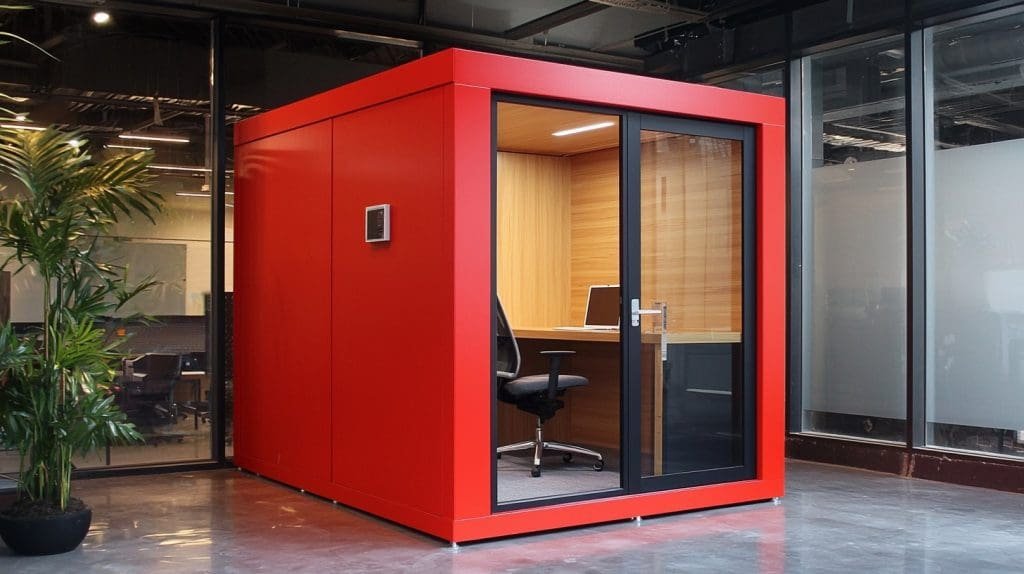
Modular furniture has become increasingly popular in container offices, providing flexible, space-saving solutions that can adapt to different work needs. By examining real-life applications, we can see how various businesses leverage modular furniture office setups to create productive and adaptable work environments within container spaces. Here are a few examples that highlight the versatility and practicality of modular furniture in container offices.
1. Startup Incubators: Flexible Workspace Configurations
In a startup incubator located in a container office setup, modular furniture enables businesses to quickly adjust layouts based on team needs and project demands. With office modular tables that can be rearranged for team meetings or split into individual workstations, the incubator maximizes limited space. Stackable chairs and foldable tables provide flexibility, allowing startups to make rapid layout changes as their team sizes fluctuate. This adaptability supports a dynamic workspace where collaboration and individual focus can coexist seamlessly.
2. Construction Site Offices: Durable and Easy-to-Move Furniture
Construction sites often require temporary offices for project management and coordination, and modular furniture provides a durable, easy-to-move solution. For example, modular desks with built-in storage are commonly used in construction site container offices to keep tools, blueprints, and documents organized. Additionally, ergonomic chairs and compact tables support long working hours while maintaining comfort and productivity. The furniture’s mobility ensures that it can be relocated as the project progresses, making it ideal for dynamic work sites.
3. Remote Healthcare Clinics: Quick Setup and Cleanable Surfaces
In remote healthcare settings, modular furniture is used to quickly establish functional workspaces within container offices. Healthcare providers benefit from readymade office furniture that is easy to clean and maintain, ensuring a hygienic environment for both staff and patients. Adjustable tables and mobile cabinets allow healthcare professionals to reconfigure the space based on patient needs, facilitating smooth workflows. The furniture’s adaptability ensures that these clinics can offer essential services in a well-organized and professional setting.
4. Educational Pop-Up Classrooms: Adaptable Layouts for Teaching and Learning
Container offices are increasingly used as pop-up classrooms, especially for temporary educational setups or remote learning programs. Modular desks, stackable chairs, and collaborative tables enable teachers to create versatile learning environments that cater to both individual study and group activities. In these classrooms, modular furniture for office setups provide the flexibility to rearrange seating for lectures, group discussions, or workshops, ensuring that the space can meet diverse educational needs efficiently.
5. Corporate Satellite Offices: Compact and Efficient Workspaces
For large corporations expanding into new regions, container offices serve as satellite workspaces that can be quickly set up and customized with modular furniture. Using office modular tables and storage units, these satellite offices create efficient work environments without extensive remodeling. Modular partitions also help define different areas within the container, offering privacy for meetings or focused tasks while keeping the space open for collaboration. This modular approach enables corporations to maintain a consistent office style across multiple locations without investing heavily in permanent fixtures.
6. Event Management and Trade Show Booths: Rapid Setup and Customization
Modular furniture is widely used in container offices set up as event booths or trade show spaces. For instance, modular furniture office pieces like foldable tables, portable chairs, and display shelves allow event organizers to quickly assemble and dismantle the space. This setup flexibility is invaluable for events and exhibitions, where adaptability and efficient use of space are essential. The ease of reconfiguration also enables businesses to adjust the booth layout based on foot traffic and presentation needs.
These examples demonstrate how modular furniture enhances the functionality, flexibility, and efficiency of container offices across various industries. From startup incubators to healthcare clinics, modular furniture offers solutions tailored to the unique requirements of different work environments. For more on how modular furniture can transform your workspace, explore our product range and discover adaptable, high-quality solutions designed for container-based office settings.
Conclusion: Transforming Container Offices with Modular Furniture
Investing in modular furniture for office spaces within container setups is a smart choice for businesses aiming to create functional, flexible, and visually appealing work environments. Modular furniture solutions enhance the adaptability of container offices, allowing for rapid reconfigurations to meet the demands of various tasks, team sizes, and industries. From office modular tables that support both individual and collaborative work to multi-purpose storage and ergonomic seating, modular furniture provides essential tools for productivity and comfort.
Choosing the right modular furniture involves considering factors such as durability, size, customization options, and maintenance needs. With options for adjustable tables, foldable chairs, and built-in storage, businesses can tailor their container offices to fit unique requirements, whether for corporate satellite offices, construction sites, or educational spaces. These versatile solutions ensure that container offices can grow and evolve alongside the business, offering a sustainable and scalable approach to modern workspace design.
By collaborating with a reputable modular furniture provider, businesses can select high-quality pieces that align with their brand, maximize limited space, and support long-term productivity. For more on how modular solutions can enhance your container office, learn about us and explore our commitment to delivering modular furniture tailored to your workspace needs.
 Container Cafe
Container Cafe